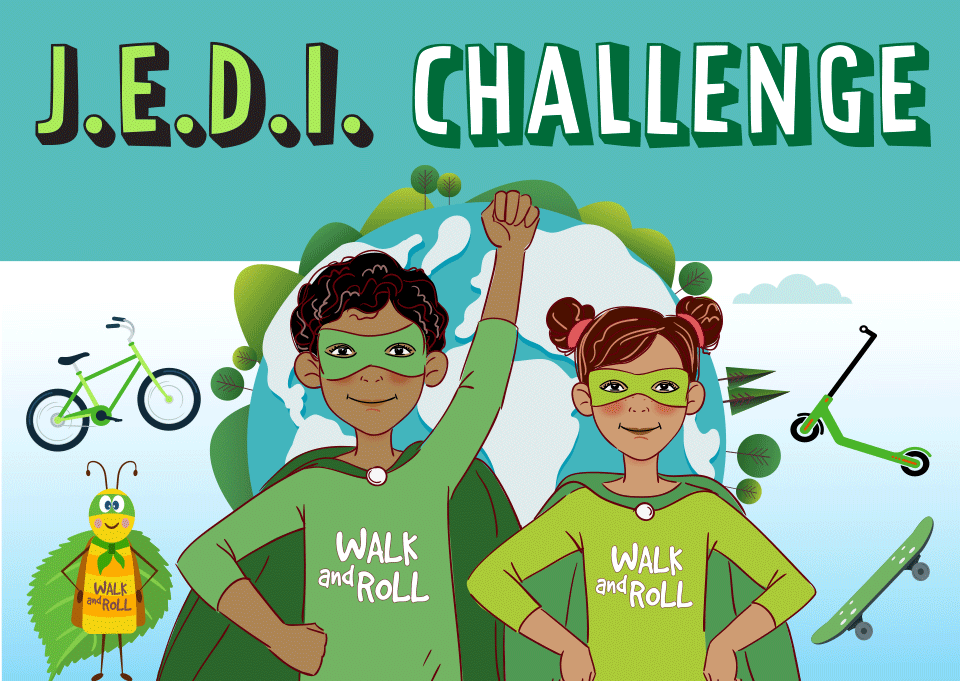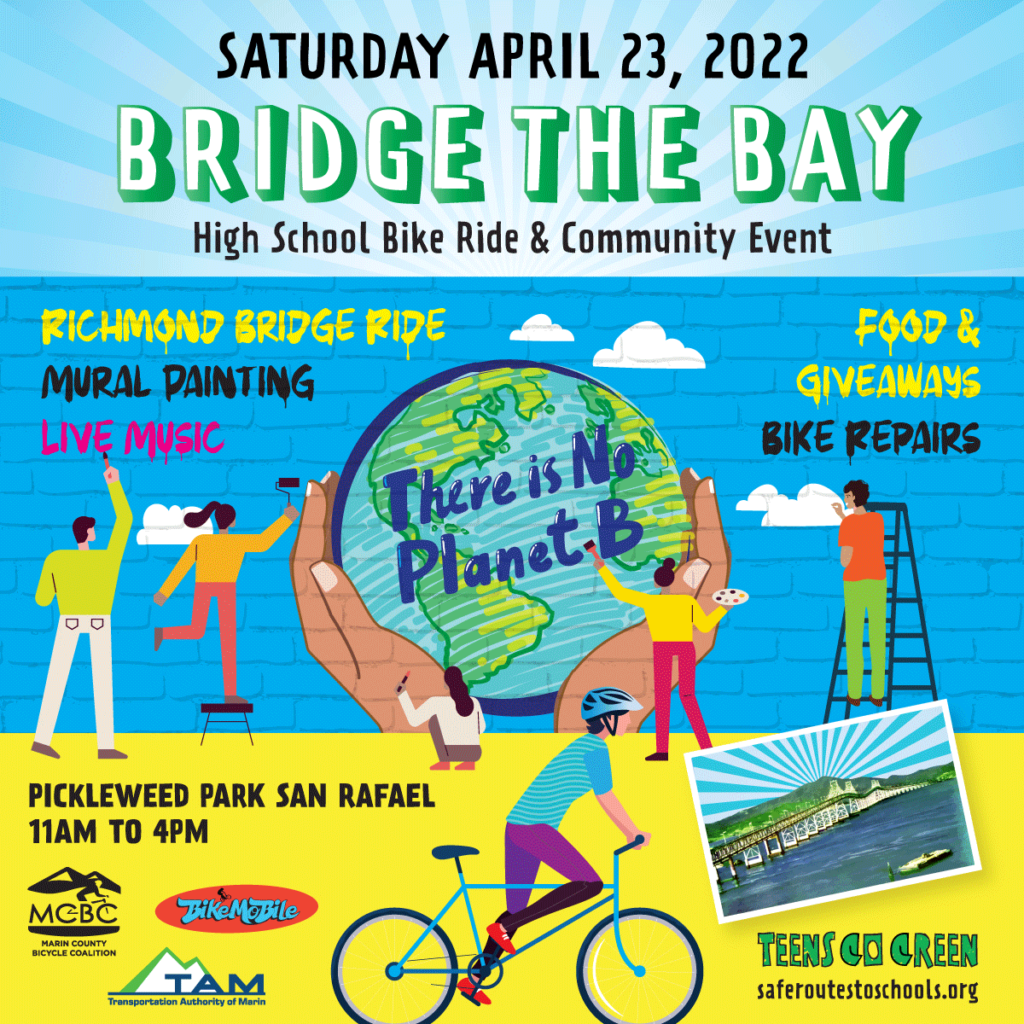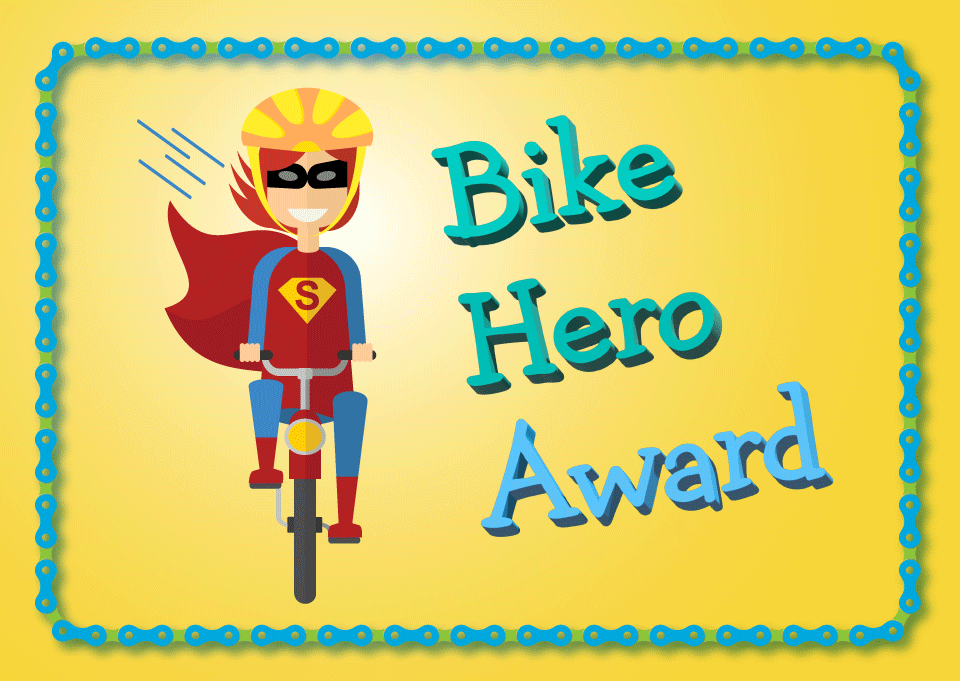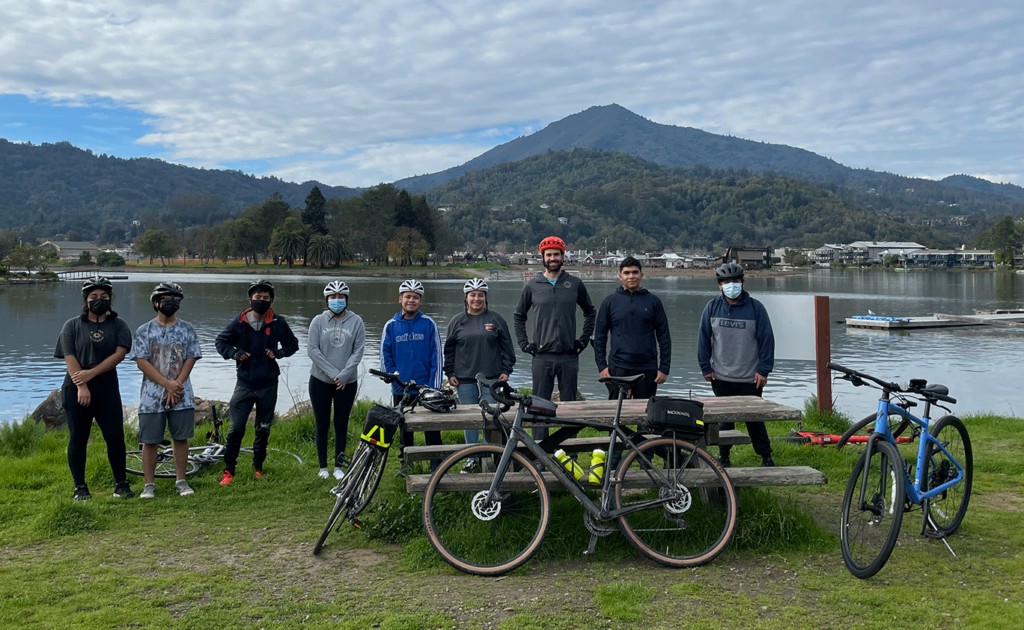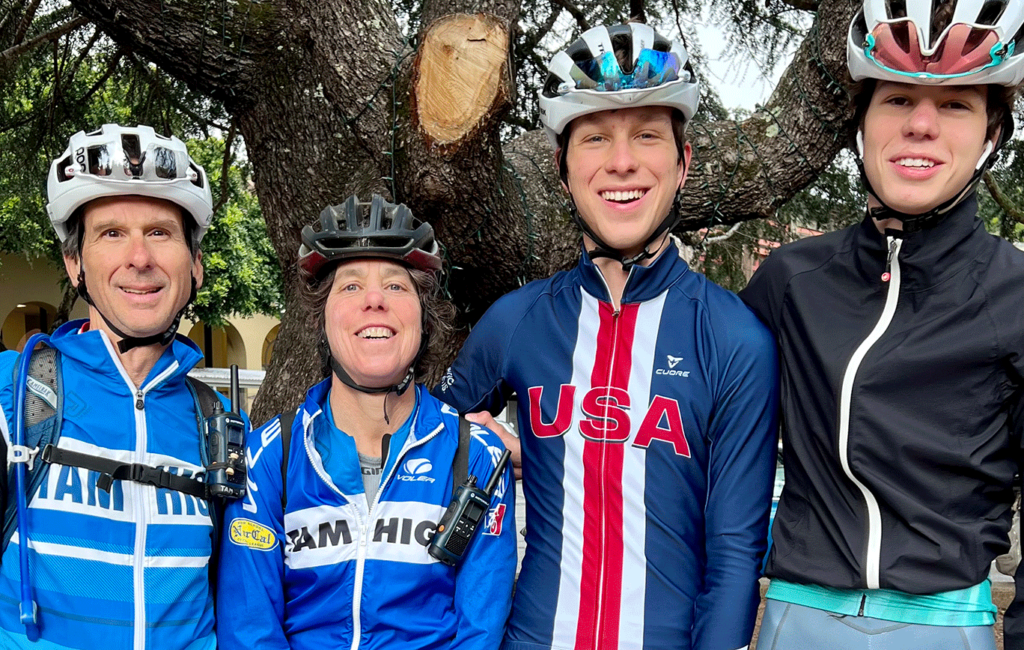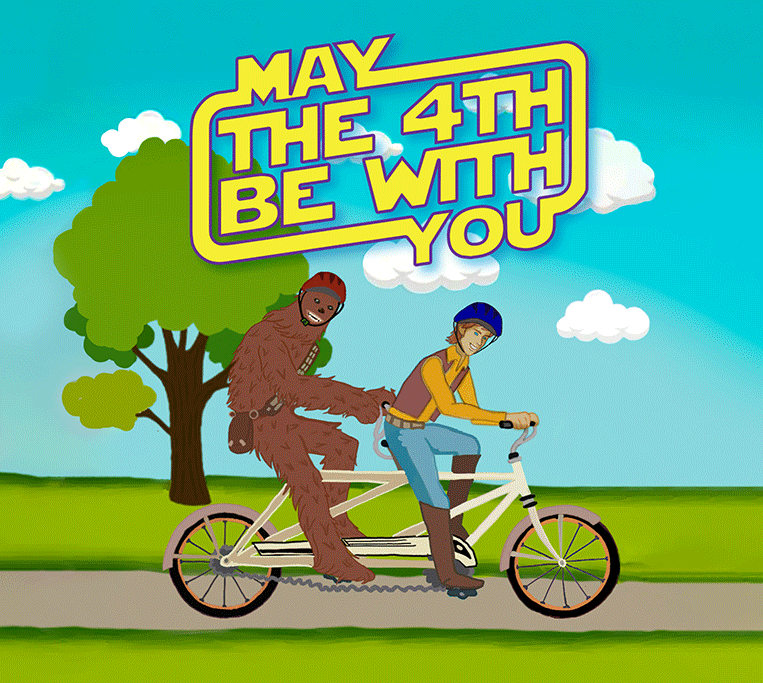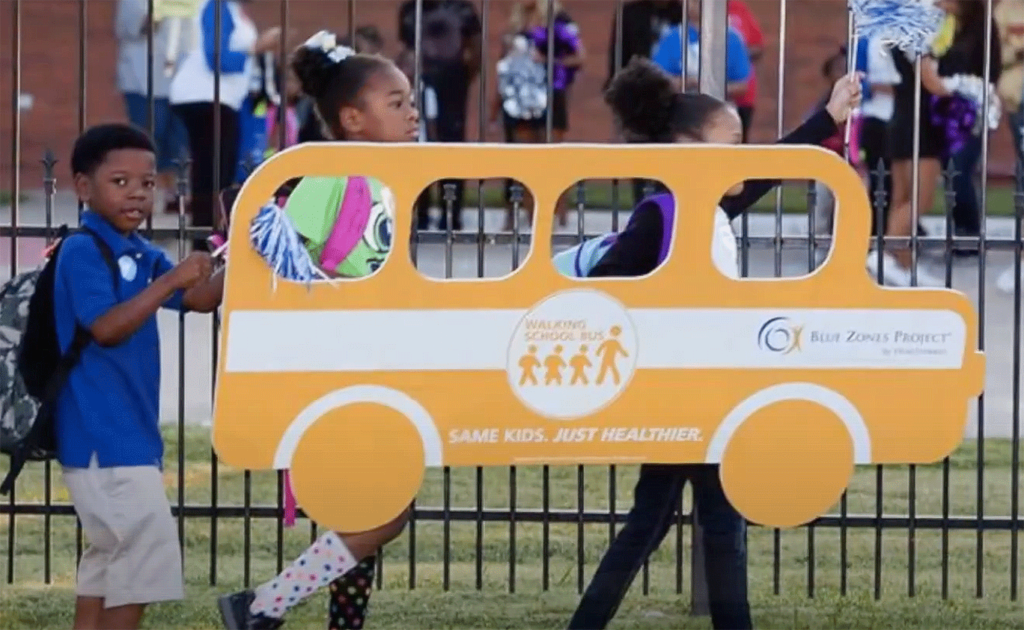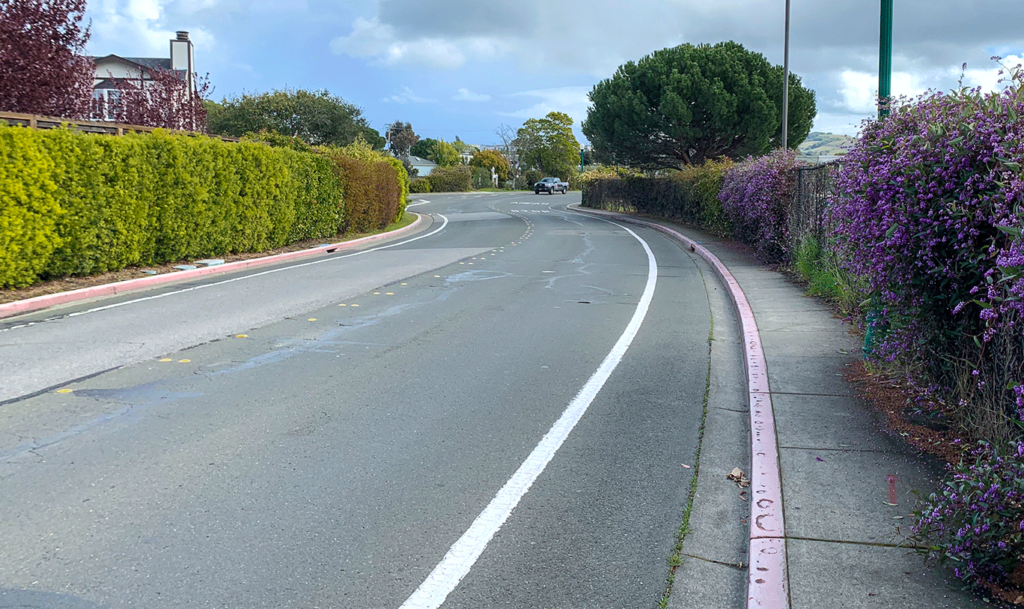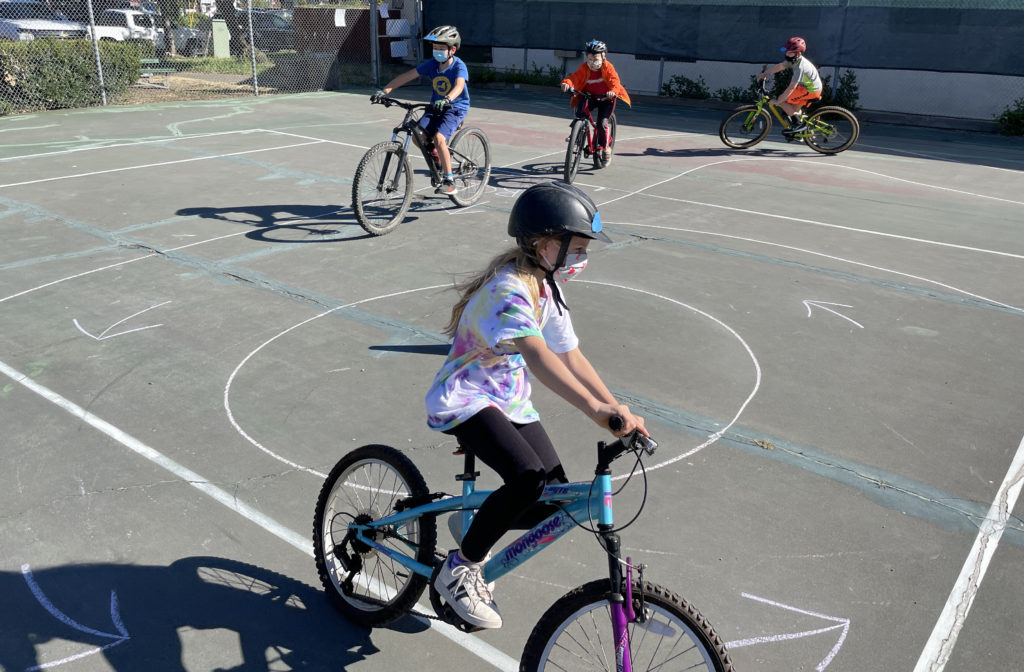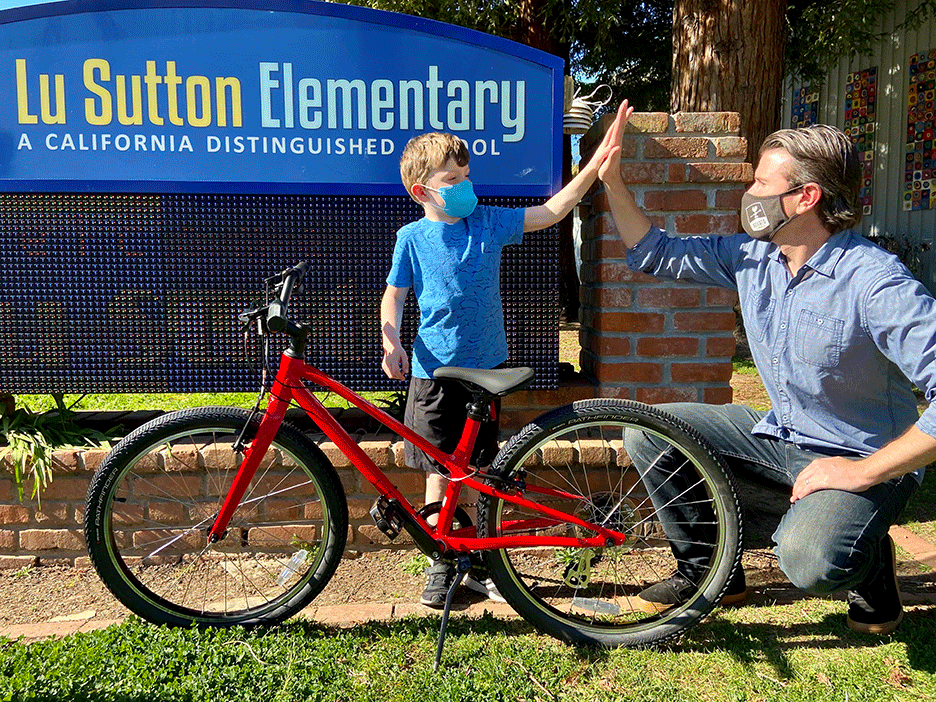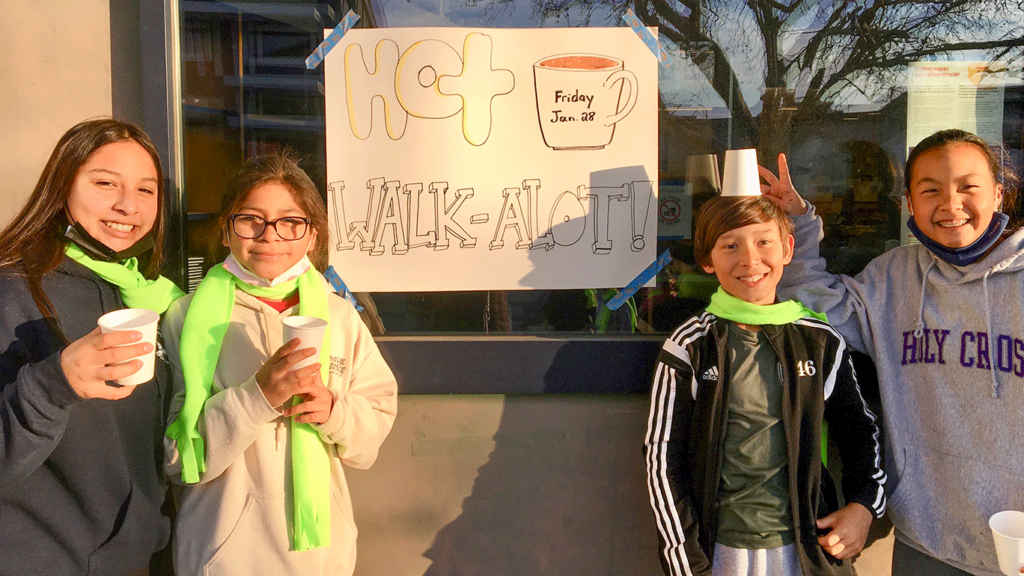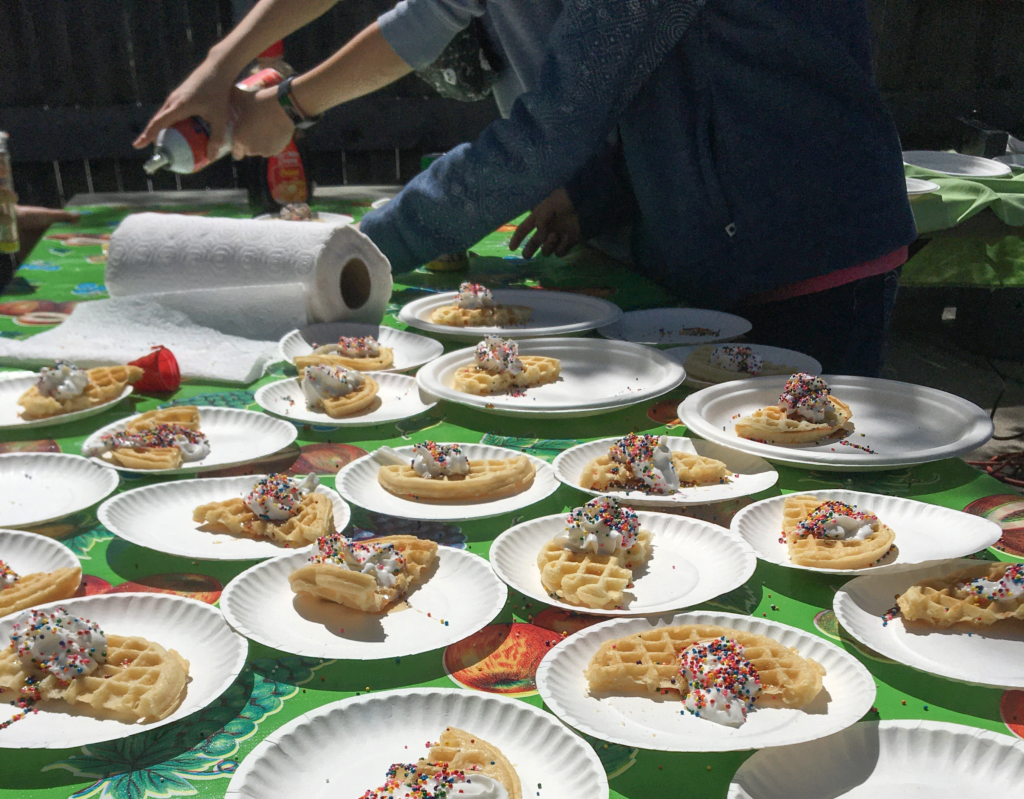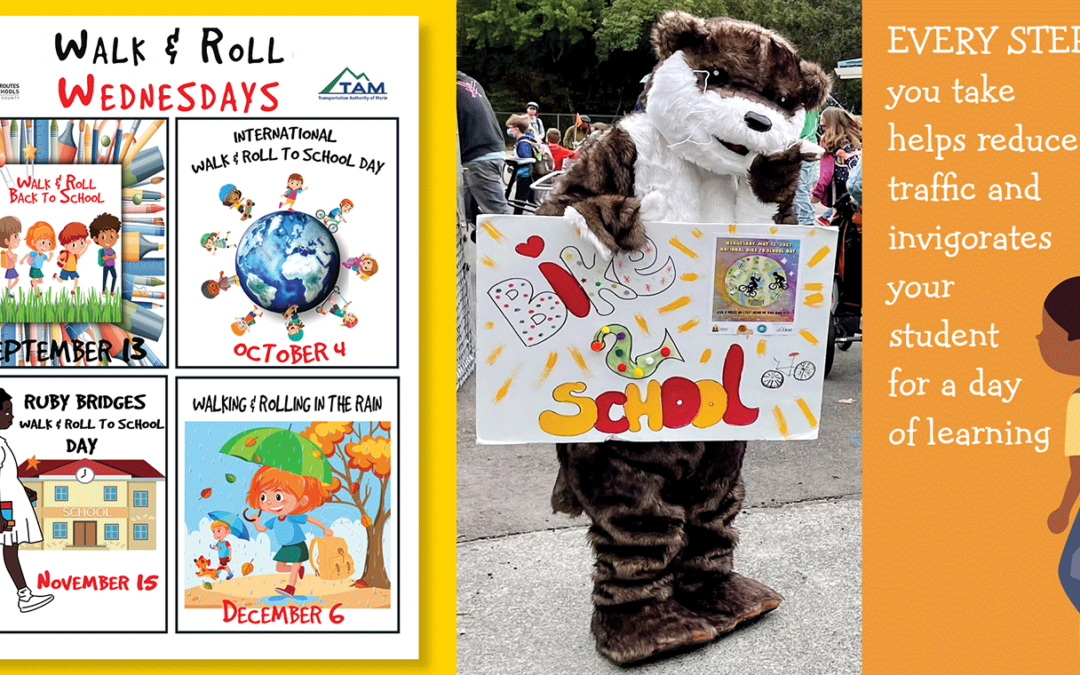
SR2S Newsletter Fall 2023
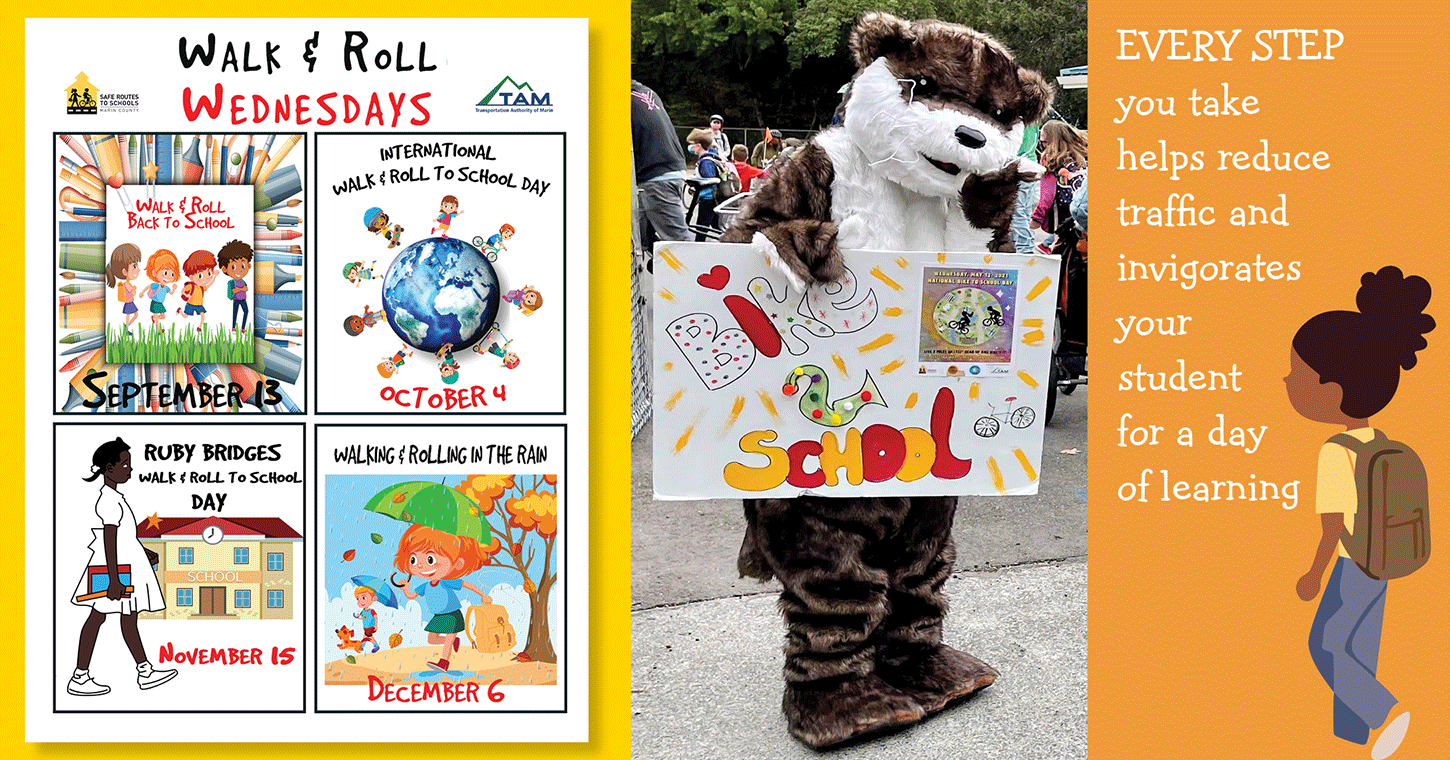
Join thousands of students who walk, bike, scooter, ride the bus, and carpool to school.
Traffic reduction is key to calmer, safer streets. This encourages more families to walk and bike to schools, further reducing traffic. You can help!
Safe Routes to Schools has several fun activities planned throughout the school year to keep momentum going. Consider Buddying Up with friends and come to a welcome table to get a prize when Walk and Roll Wednesdays are celebrated once per month. The first Walk and Roll Wednesday welcome table is September 13. Mood changing pencils will be handed out to thank the walkers and rollers for doing their part to create safer streets and a healthier planet.
EVERY STEP YOU TAKE helps reduce traffic and invigorates your student for a day of learning, even if it’s only once per week or only a few blocks. Here is a simple way everyone can be part of the solution, even for those who live far away:
Park and Walk a Block for Your Grade (carpoolers encouraged to do so too)
• K-1st graders – Park and Walk 1 block
• 2nd graders – Park and Walk 2 blocks
• 3rd graders – Park and Walk 3 blocks
• 4th and 5th graders – Park and Walk 4 or more blocks
Start small to form habits: Get up and get out to walk and roll at least one day per week to form a consistent routine with your child. Try to Walk and Roll EVERY Wednesday to start. Before long, your student will look forward to walking hand in hand with you, exploring, and forming memories together.
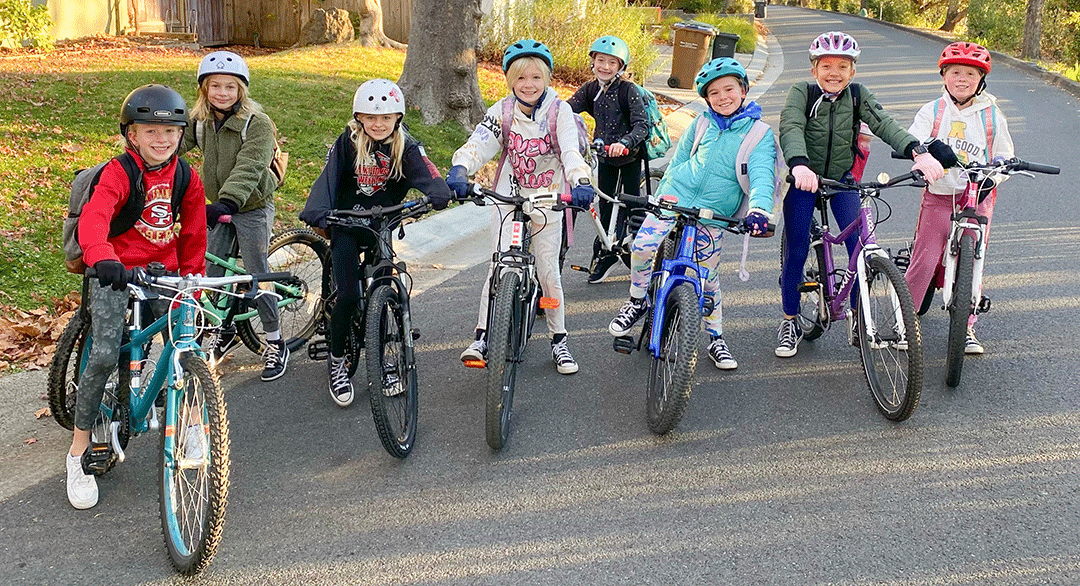
The Safe Routes to Schools BUDDY UP! contest was a great hit last fall and will return again this year. Buddy Up! is a great way to start the year with friendship and fun on the way to school, and kids can also win valuable rewards by participating. If your students have a travel “buddy”, they are more likely to want to get up a little earlier to walk, bike, take the bus, or carpool to school together. Additionally, there is safety in numbers and groups are more easily seen by drivers. Best of all, friendships and memories are formed by walking and rolling with others.
Participation is easy. Starting now, parents can sign up their group of two or more students from neighboring families to travel to or from school. O Sign up using this Buddy Up Entry Form, and don’t forget to tell us how the students met, what they like about traveling together, and any compelling fun story we can share.
The contest runs until October 31. At the end of the contest Safe Routes to Schools will select five winning BUDDY UP! groups to receive $50 gift cards.
Here is one heartwarming quote from Michelle Wilcox, the mother of one of the Bacich students who won last year:
“This group of third graders has been riding to and from school and affectionately been nicknamed “The Peloton” by neighbors who witness their numbers swell as they pick up more and more friends along the way to Bacich. They’re always looking out for each other, on the road and at school. They love being in a large group because it makes it easy to maintain the habit of riding every day, even when one or two people can’t make it. There’s always someone (and more often lots of people) to ride with!”
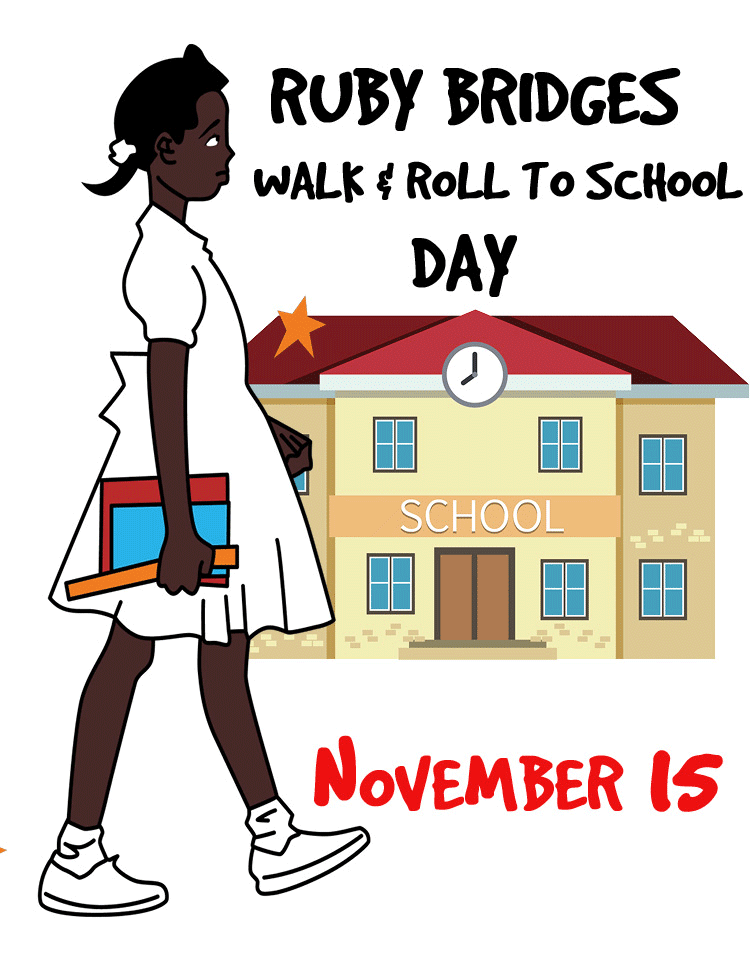
For the first time, Safe Routes to Schools is rolling out Ruby Bridges Walk and Roll to School Day countywide on November 15. All 42 subscribing elementary schools are encouraged to participate in the event.
Safe Routes will provide its volunteers and school administrators with all publicity and supplies for this special event. Schools can include not only the walkers, but also those students who prefer to roll, take the bus, park and walk, or carpool.
Back in the 1950s, Ruby Bridges was a six-year old African American girl in Louisiana who was assigned to attend an all-white educational institution. She endured verbal abuse from bystanders during her daily walk to class, and most of her white classmates were pulled out of school after she started attending. Ruby and her parents persevered, and over time, the school was successfully desegregated. Now Ruby is a teacher dedicated to inspiring others.
Last year, Bayside Martin Luther King, Jr. Academy in Sausalito celebrated the achievements of Ruby Bridges by walking to campus. “Eight students from our middle school traveled to our elementary school to host the event. Heavy rain occurred on that day so we could not hold the session outdoors, but our students walked from classroom to classroom, promoting Ruby’s story and the Safe Routes mission,” said Phillip Logan, Community School Director with the Sausalito-Marin City School District.
According to AAA, last year 343,000 students from 1,400 schools around the United States took part in Ruby Bridges Walk to School Day.
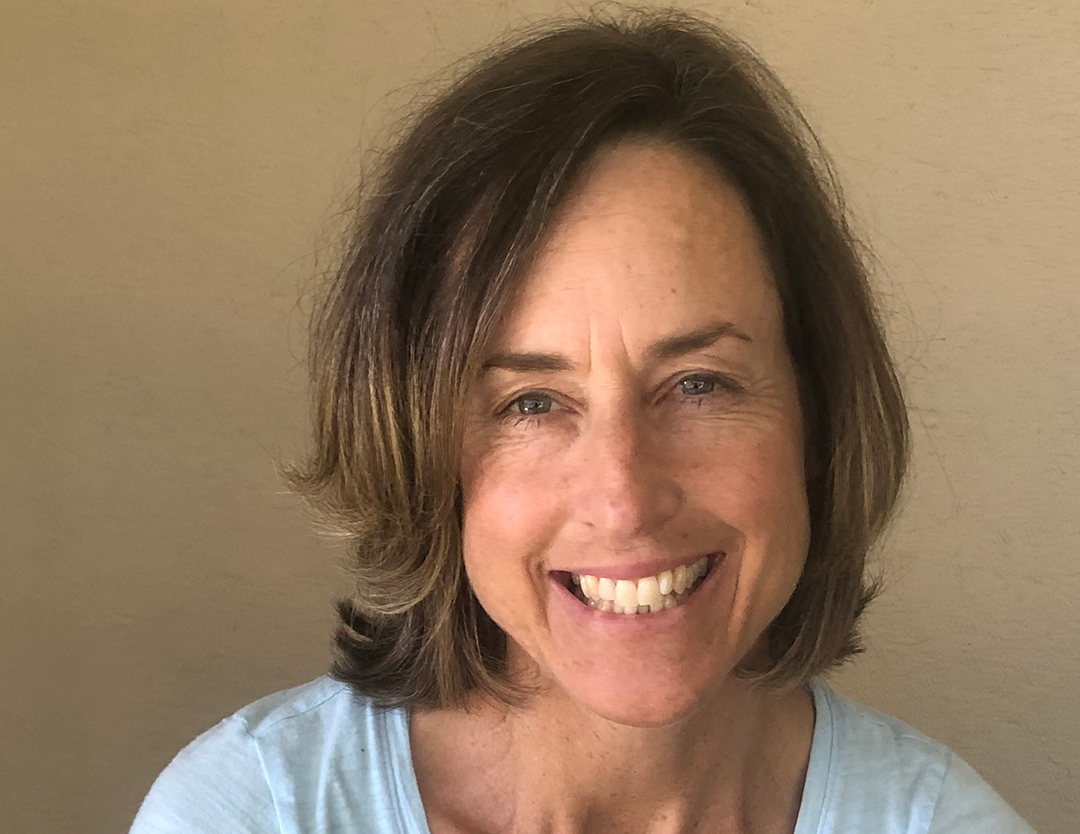
As Safe Routes to Schools’ new Volunteer Coordinator, Mira is excited to join forces with dedicated parent volunteers at elementary schools all across Marin to make walking and rolling to school a healthy habit.
Mira brings a background in marketing writing and project management to Safe Routes to Schools. She has worked in communications and outreach with a number of nonprofit organizations including the University of San Francisco and the YMCA of the East Bay. She is especially appreciative of the opportunity Safe Routes to Schools provides to build stronger school communities.
A Marin Native and Novato resident, Mira loves to bike and walk around her community, often in company with Russ, her Australian Shepherd. She has two children who attend Novato schools, where she also volunteers. Her most memorable cycling adventure was spending two months touring South Africa with her husband.
Please drop Mira an email and introduce yourself or let her know if you have any questions or concerns: [email protected].
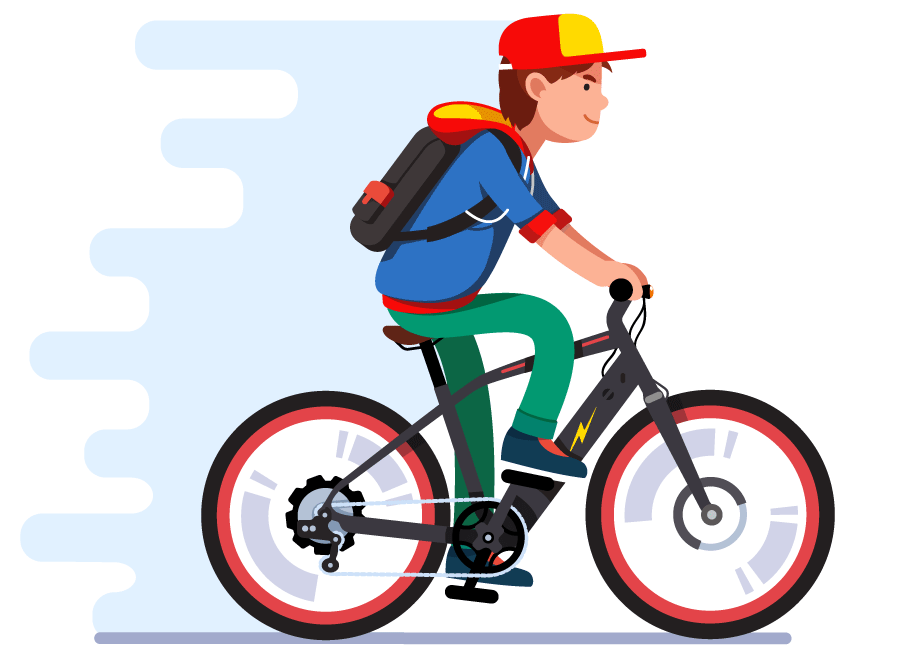
As e-bikes and e-scooters have surged in popularity with students in Marin, so has public outcry over concerns for students’ safety. School administrators, city officials, and local law enforcement have been besieged by complaints about students traveling too fast, many without helmets, while swerving rapidly past cars and pedestrians on sidewalks not wide enough to handle them.
Two Marin communities have taken steps to mitigate unsafe behavior on hefty devices that allow children to travel at twice the speed students normally travel on non-motorized bikes or scooters.
The Ross School partnered with the Ross police department to develop a “Caught Being Kind” incentive program to award kindergarten through eighth grade students for good riding behavior. Ross law enforcement hands out Caught Being Kind cards for wearing helmets, riding slowly, and obeying the laws. The cards can be entered into a raffle drawing for ice cream, pizza, and other sought after gift cards. Ross teacher Ms. Caitlin Santin led her Diversity, Equity, Inclusion, and Belonging (DEIB) students to create the safety campaign and a video to promote it.
In Mill Valley, where e-bikes are prevalent among the 600 middle and high school students that ride to school daily, Police Department Chief Rick Navarro is taking a different approach. After a year of outreach and education about wearing helmets and riding responsibly, the Mill Valley Police Department changed their local ordinance to give police authority to cite students for a diversion program, mandating that they attend a class taught by Safe Routes to Schools instructors. The teen class is part of Marin County Bicycle Coalitions’ E-Bike Smart Marin program and carries a $150 fee to attend. Twenty students will be attending the first class in Mill Valley on September 9.
Chief Navarro says, “Thank you again, for all that you are doing to allow students to be successful and safe. We in law enforcement truly appreciate the partnership.”
“They are basically mini-motorcycles. I got hoodwinked into buying one.” – Anonymous parent of a teen about Class II e-bike
Marin Safe Routes to Schools strongly discourages parents from purchasing Class 2 throttle e-bikes for children under the age of 16.
Many popular manufacturers of Class 2 e-bikes also only recommend them for teens 16 and over. Several states have already outlawed Class 2 e-bikes for students under 16, and California legislation is currently debating if our state’s law should be revised as well. Currently California law states that Class I (pedal assist) and Class 2 e-bikes are legal for children of any age, while Class 3 (throttle assist bikes that travel up to 28 mph) have an age restriction of 16 years and above. For parent e-bike safety tips, read here.
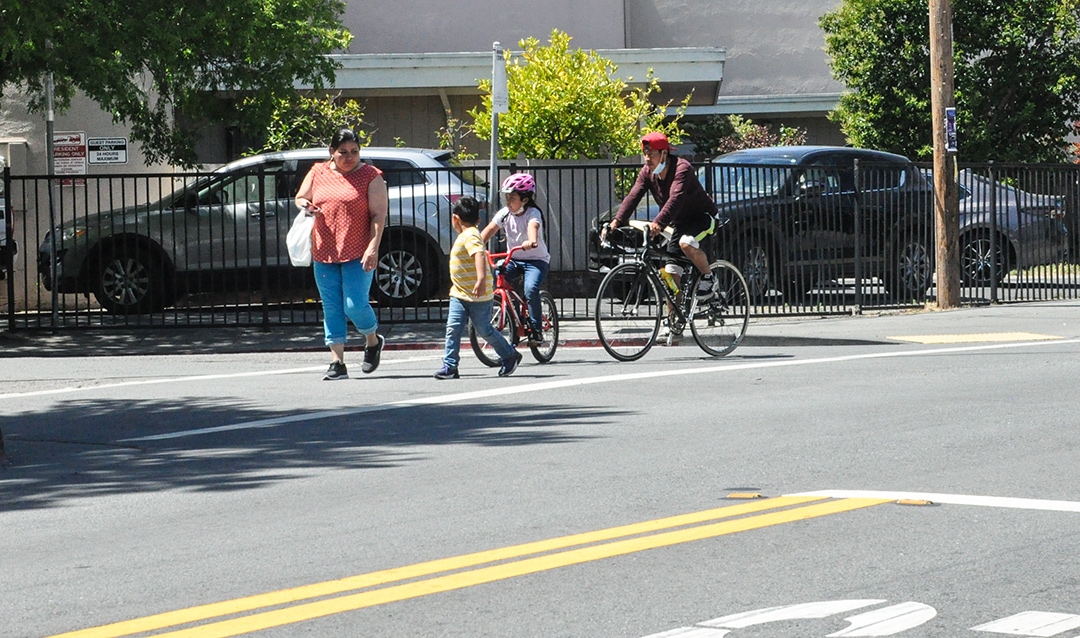
Securing the funds for the projects that make it safer to walk and roll to school is key to ensure that these projects are studied, designed, and ultimately built. Recently 11 projects throughout Marin County were awarded almost $20 million in grant funding from the Metropolitan Transportation Commission’s highly competitive Active Transportation Program and One Bay Area Grant program. A number of these projects will directly impact students’ abilities to walk and roll to school.
Five projects in San Rafael received funding through the grant programs. Over $8 million will be devoted to two projects in the Canal neighborhood. Some of them include the study of a pedestrian bridge across San Rafael Creek and the funding of walking and rolling improvements throughout the neighborhood, such as filling sidewalk gaps, improving lighting, and calming traffic. Other projects will study active transportation upgrades in North San Rafael and Southeast San Rafael and will make changes at the Second Street/Fourth Street intersection.
Corte Madera also received a $3.5 million funding for two projects. One of them will aim to close gaps in the active transportation network by improving the multi-use pathway on Wornum Drive and adding a cycle track on Nellen Avenue. The second project will focus on making improvements along Paradise Drive.
In Sausalito, half a million dollars will go towards studying bike lanes along Bridgeway from Princess Street to Richardson Street. This would fill a critical gap in the City’s active transportation network.
With all these recent wins, it is clear to see that Marin County is making strides to improve walking and rolling for its students.
Task Force ChangeTask Force Change
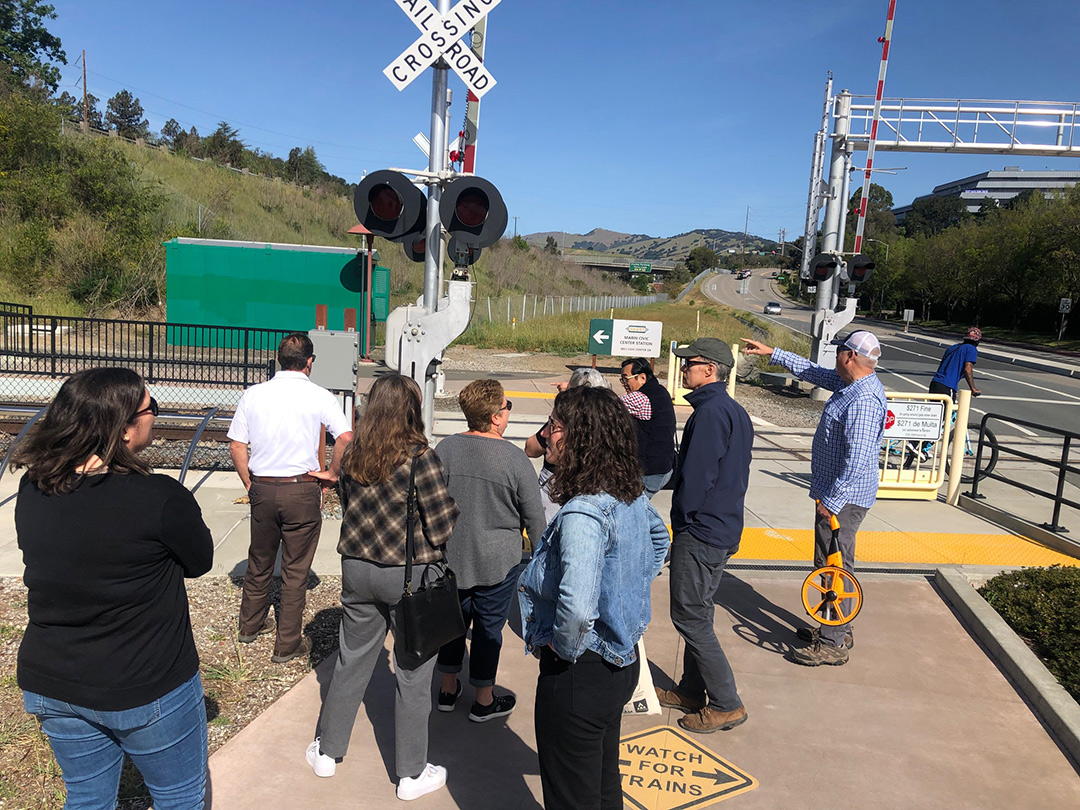
The Safe Routes Task Forces will take a fresh approach to engage the whole community in increasing green trips to and from school, thereby decreasing traffic congestion in the community.
At each task force meeting, we’ll use new, data-driven tools to determine the potential of each school to increase walking and rolling trips. These tools include dot maps, which use anonymized student data to show how many students live within walking or biking distance of school. We’ll also consider student survey results that show the different modes students use to get to and from school. These tools will allow the task forces to focus their attention on the best strategies for increasing green trips.
Safe Routes to Schools will also organize separate meetings with district principals to get their input on how best to increase green trips in their schools. Equity priority schools will have the opportunity to have separate meetings if parents are unable to attend task force meetings. Our new partners, Strategic Energy Innovations, will be developing leadership programs in those schools to engage the students.
Please come with your suggestions on how to increase access to walking, biking, and shared transportation choices for school communities. With your support, a culture of active and shared commute to schools can be realized with safer streets for students.
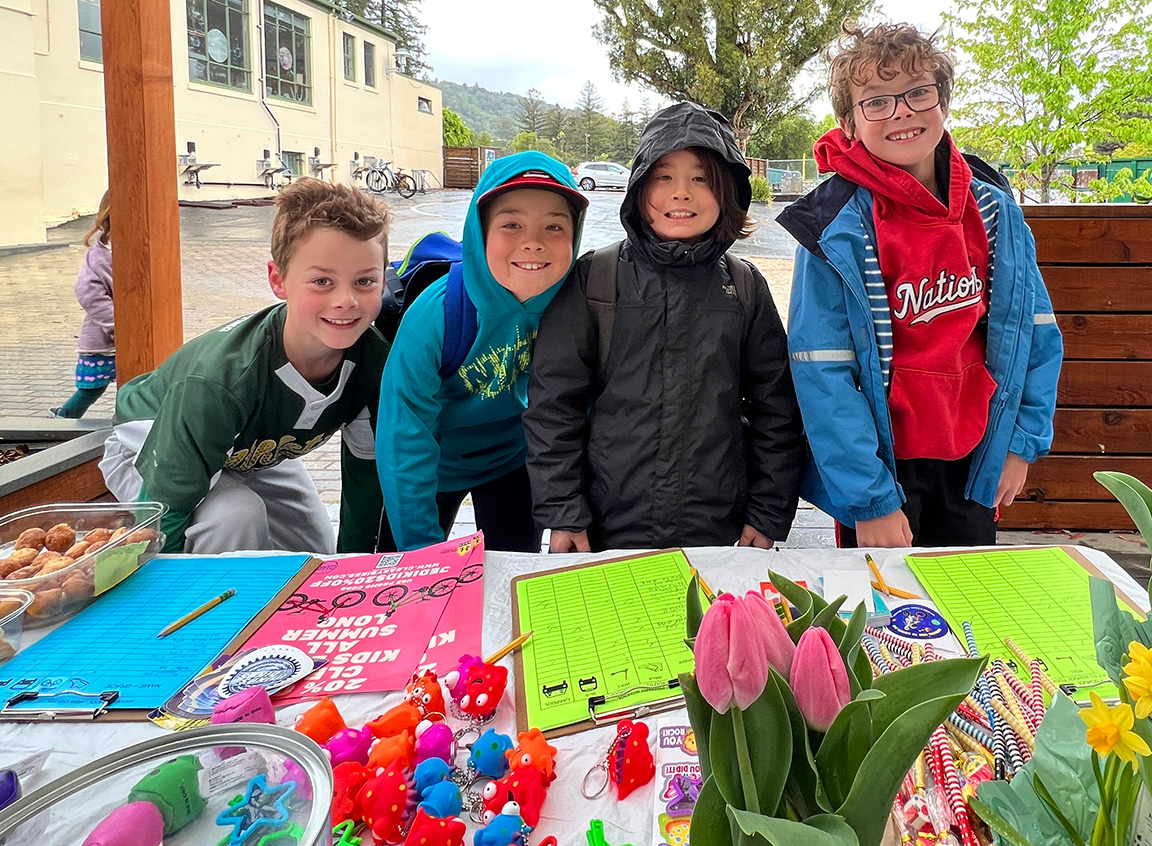
In only one year since their return to the Safe Routes to Schools program, the efforts of parent volunteers from Marin Primary School is paying off. They have seen a significant jump in the levels of participation in their Rock and Roll Wednesdays events. Last year, an average of 55 students walked or rolled to school with a record-setting 100-plus participants on some Wednesdays; this is an exceptionally high number for a private school where commutes are typically long.
“It was fun to see participants from our entire community show up on those mornings,” said Dana Cole, one of the parent volunteers who helped organize the events. “There was so much enthusiasm.”
Cole and her fellow volunteer, Catherine Hedrick, reignited the green travel campaign after the program lapsed at the school. They created enthusiasm for walking and rolling by adding a theme and dressing up. For November’s Walk and Roll, for example, they donned fuzzy hats in the shape of turkeys. After the holiday break, they turned hosting the events over to the students. Once a month, a different class added a spin of their own, creating the theme, prizes, or treats. One class hosted a spring flowers-themed Wednesday. Another used St. Patrick’s Day as their theme.
The incentives were key, acknowledged Cole and Hedrick. The PTA decided to add to the prizes offered by Safe Routes to School. And they had plenty of treats, like doughnut holes. “[They] were the real prize of the morning,” Hedrick said.
“We are hoping for another successful year and clear days ahead,” Cole said.
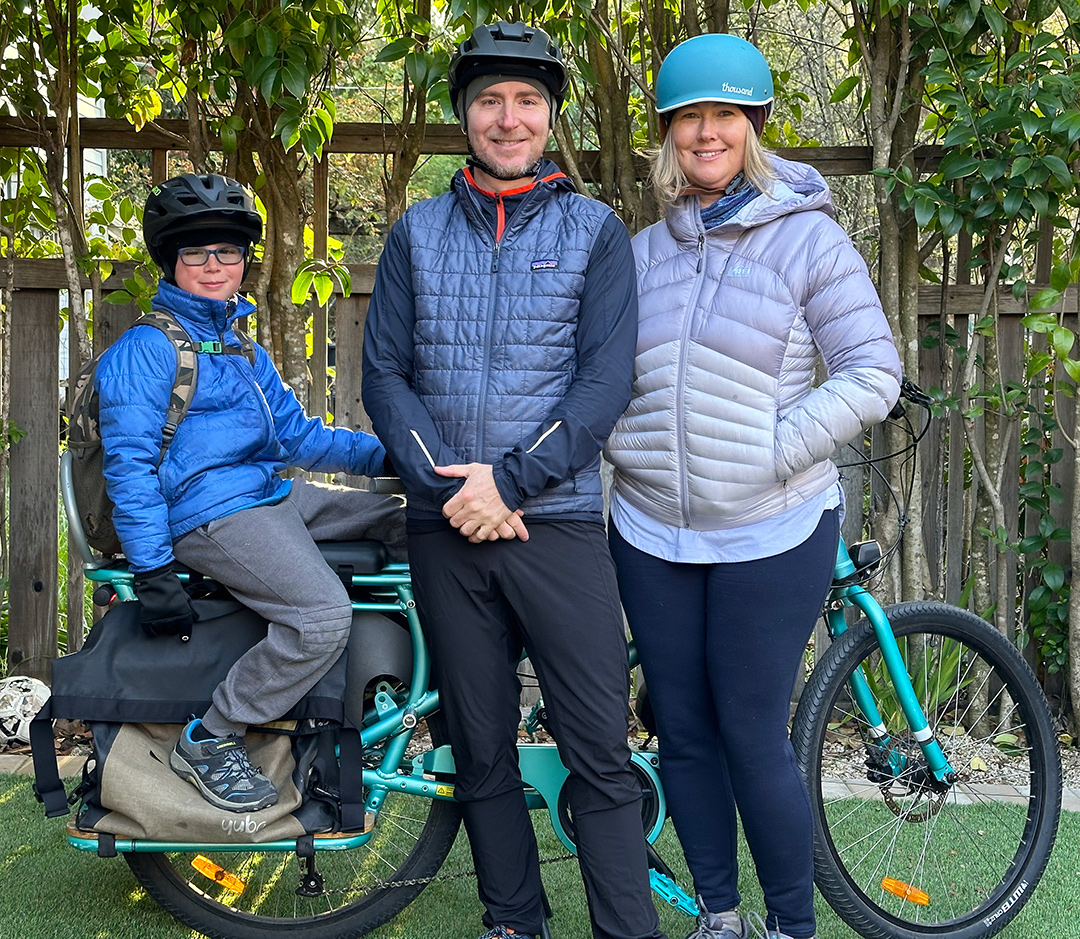
Bike trains for elementary school walkers and riders are a fun way to encourage healthy green travel. Parents Joey and Stacy Shepp from Manor Elementary have led an enthusiastic, two-mile bike train route for the past few years. Several meet-up locations en route encourage families to join in.
“[It’s] an exciting parade to school where the kids have fun waving to all the onlookers who smile back,” said Joey Shepp. Going above and beyond, the Shepps help their young riders practice responsible riding including observing traffic signs, using hand signals, and following bike lanes and sharrows, all while getting to school early to enjoy prizes from the monthly Walk and Roll Wednesday table.
Twice a year, the bike train becomes a real parade, with a fire truck and police car escort down Sir Francis Drake boulevard. And last year, the bike train added students from Ross Valley Charter.
Safe Routes to Schools has often been described as fostering community building, creating friendships and family connectedness through the simple pleasure of walking and rolling to school together. This sentiment is echoed by the Shepps. “It is a great way to be social with other parents and kids, establishing a face-to-face community that you just don’t get when you drive to school.”
According to the Shepps, more than half of Manor’s students participated in the school’s Walk and Roll Wednesday events last year. Joey Shepp adds, “when we make announcements about the Walk and Roll program at our morning school assemblies, the kids cheer with excitement and purpose. I believe many families have started biking and walking to school because of this program, and continue to make it a habit because their kids love the community and prizes. I consider Walk and Roll to be a core program of our school’s culture and I’m thrilled to be part of it.”
This article was originally published in the 2018/2019 Safe Routes to Schools evaluation report conducted by the Transportation Authority of Marin (TAM). TAM conducts the comprehensive evaluation every three years. Here is the 2019/20 – 2021/22 Evaluation Report; the Shepps’ story can be found on page 36. [17 MB file]
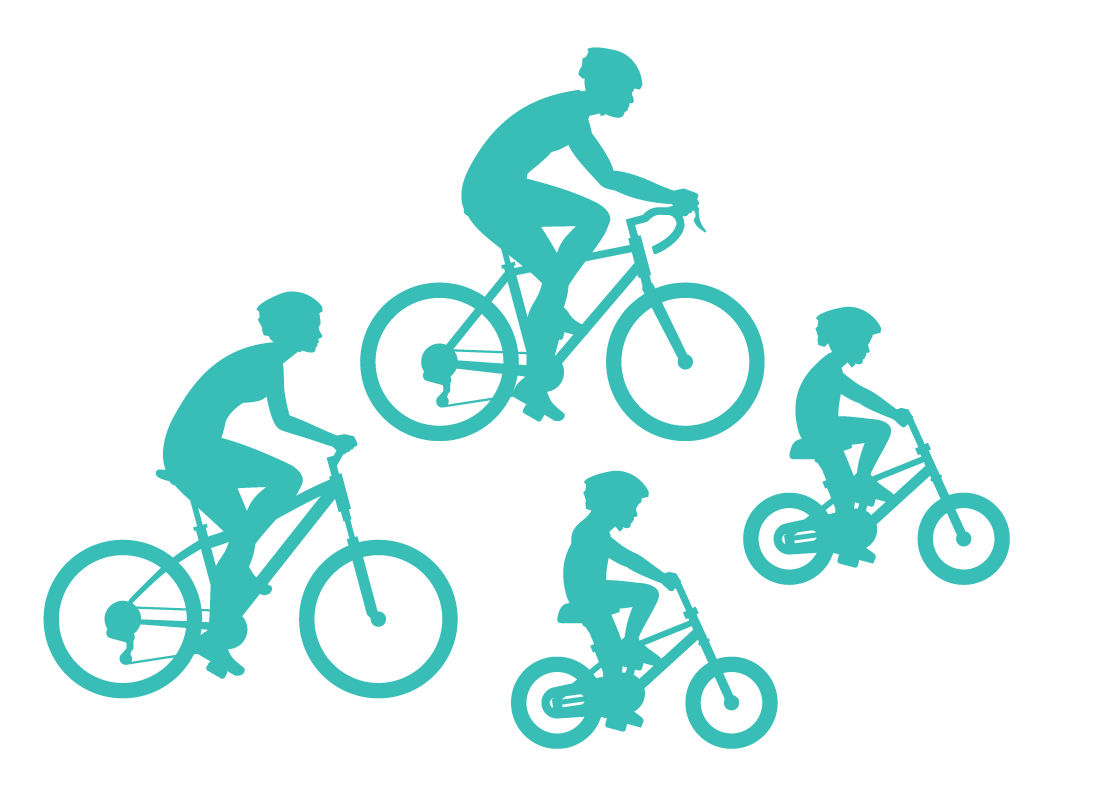

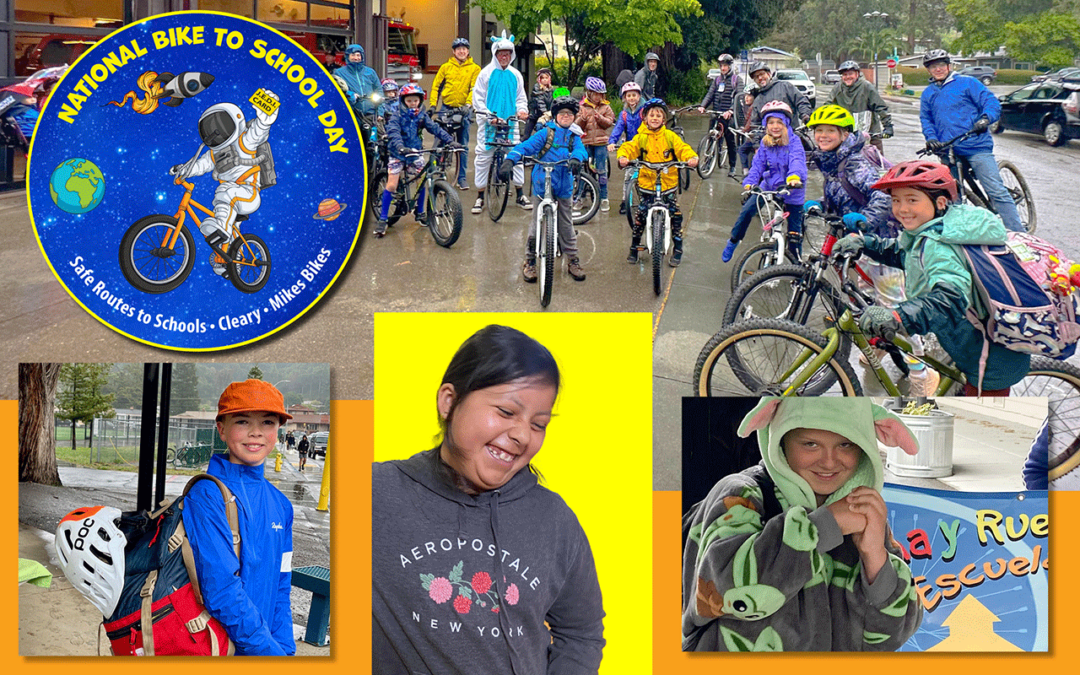

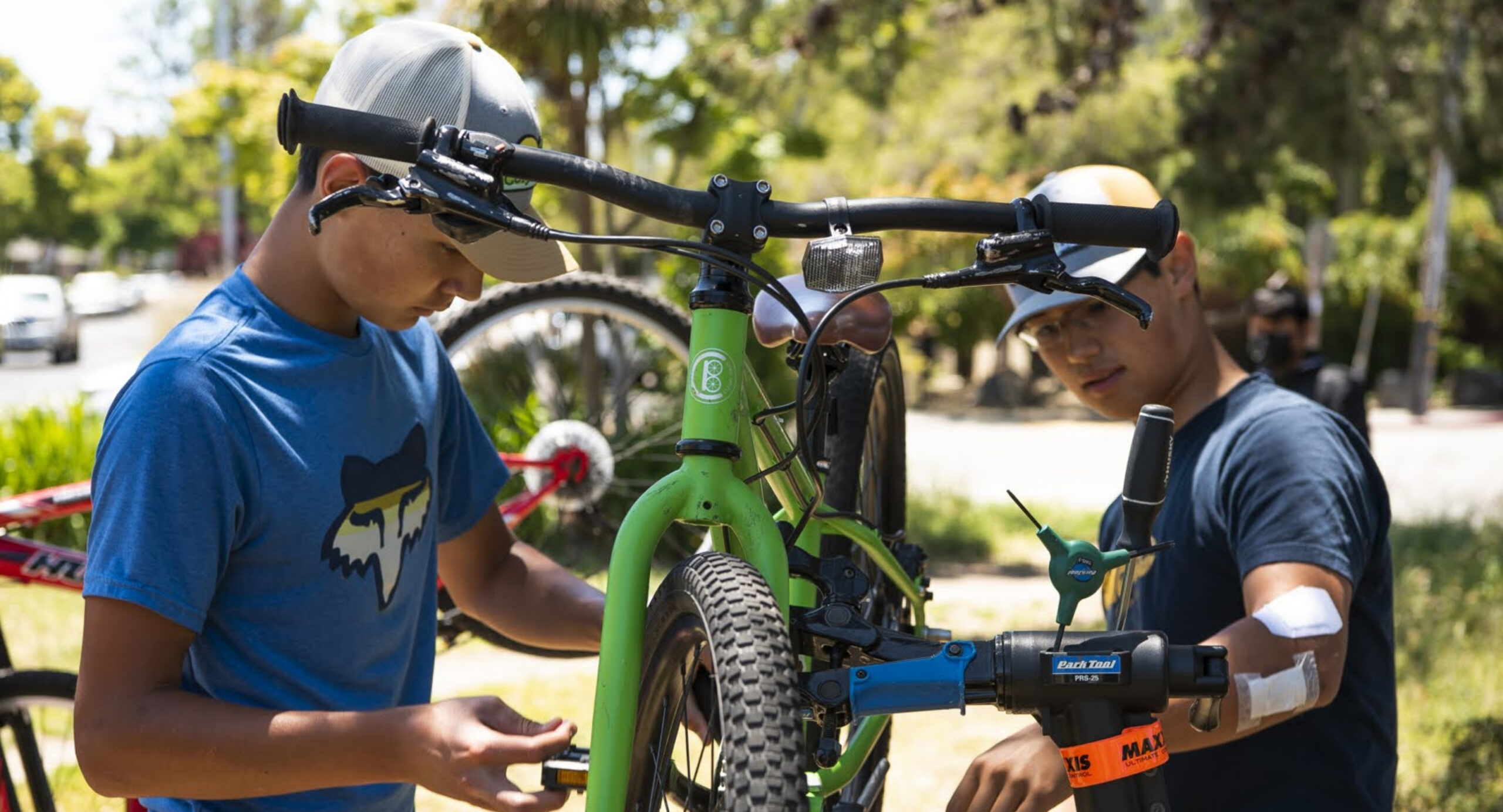
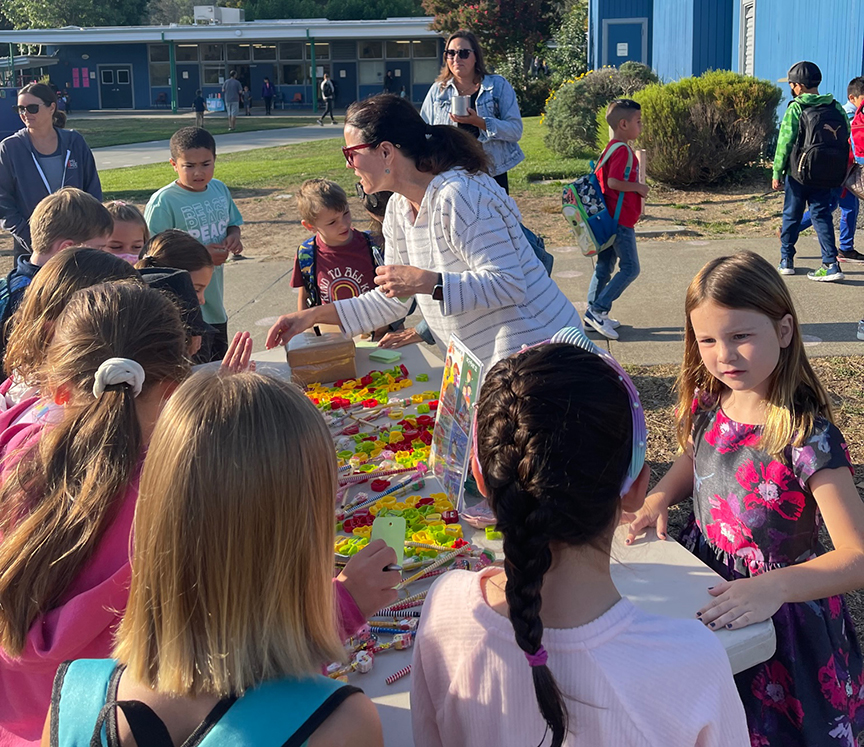
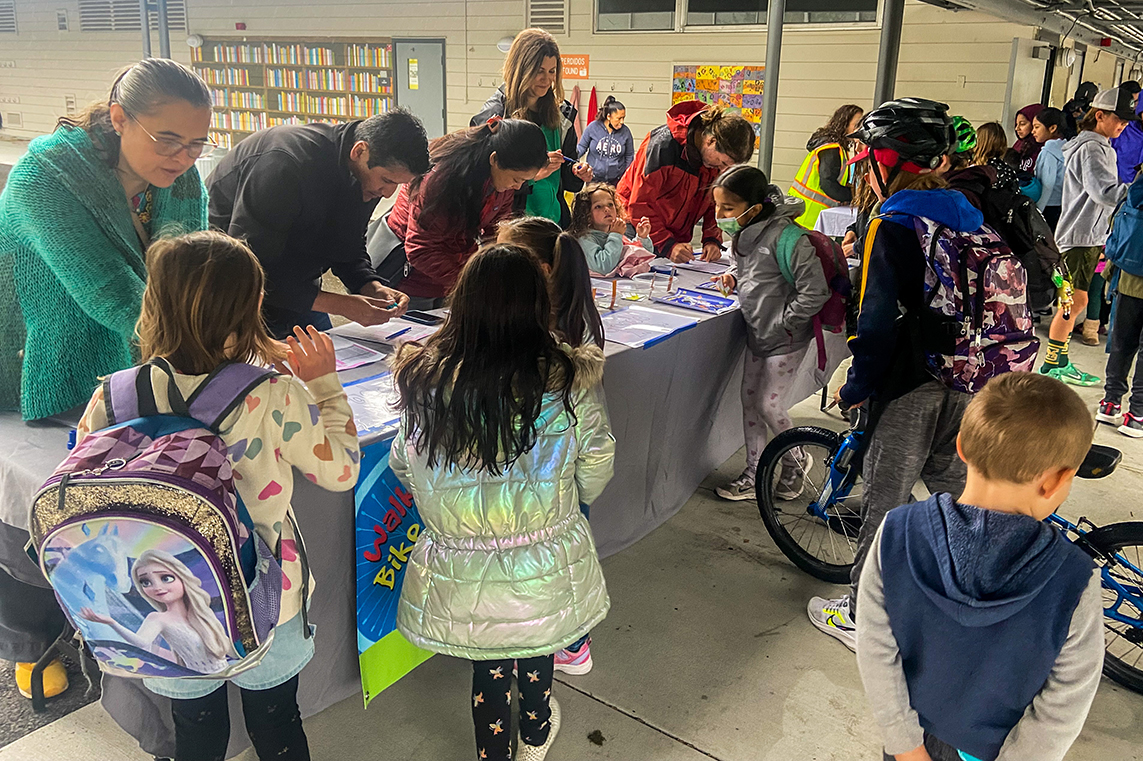
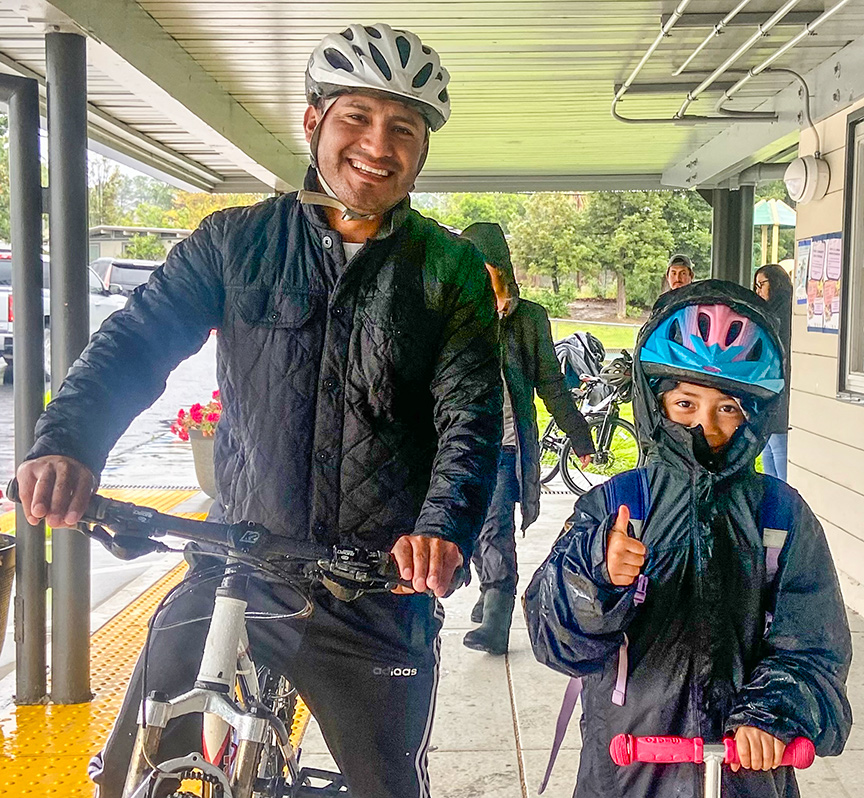
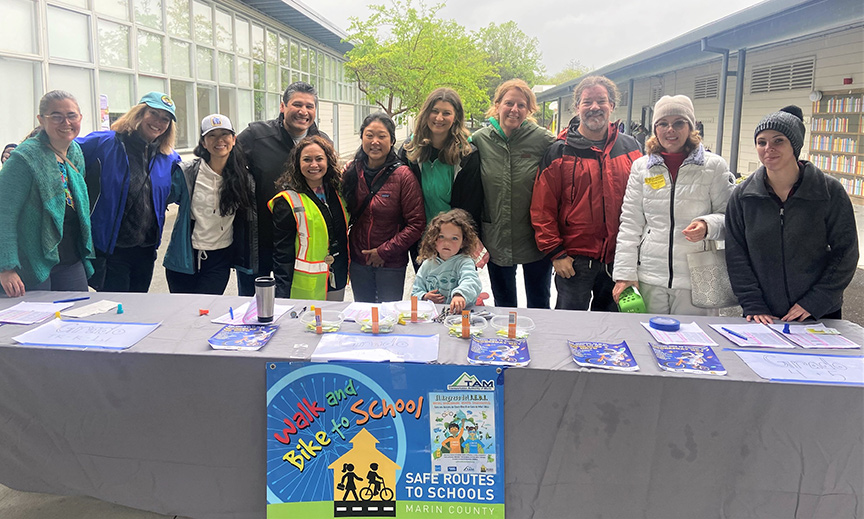
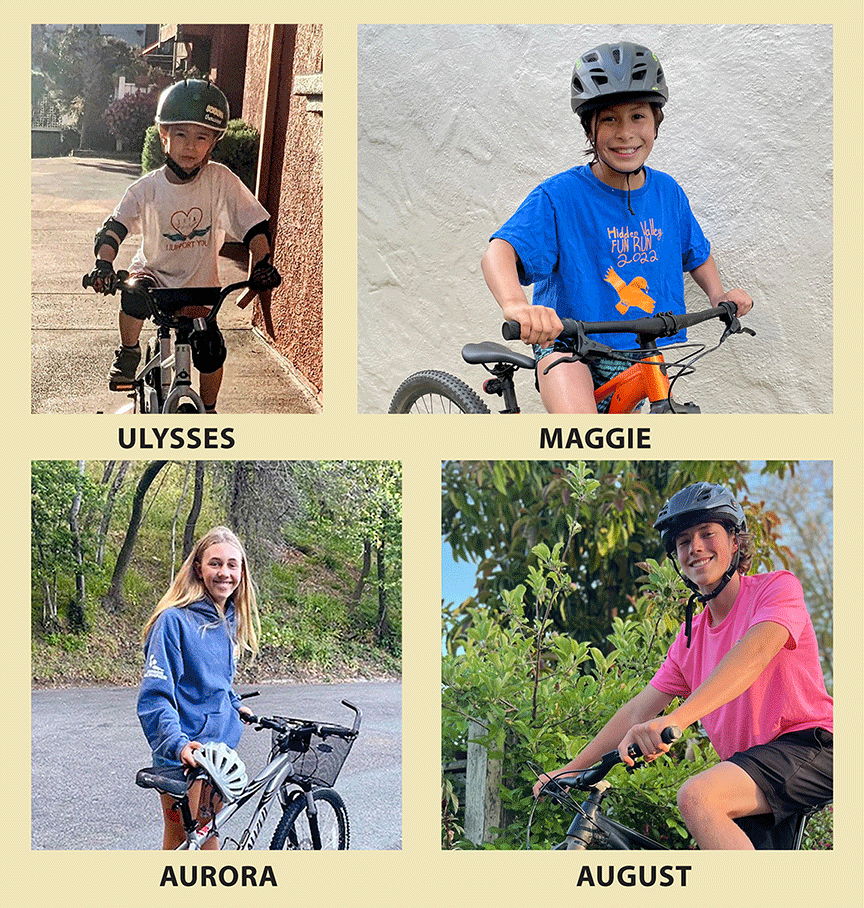
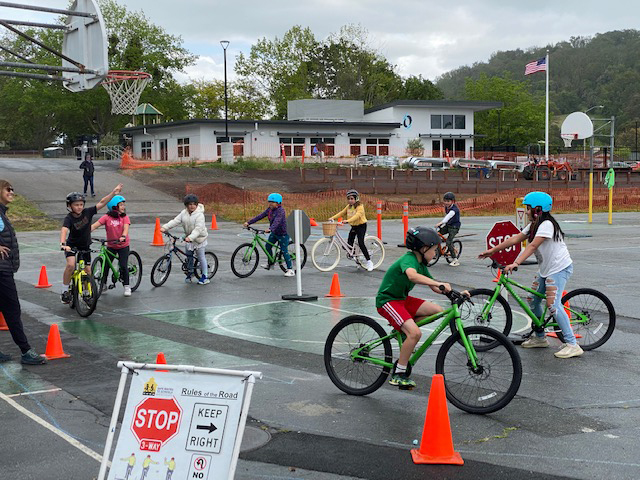
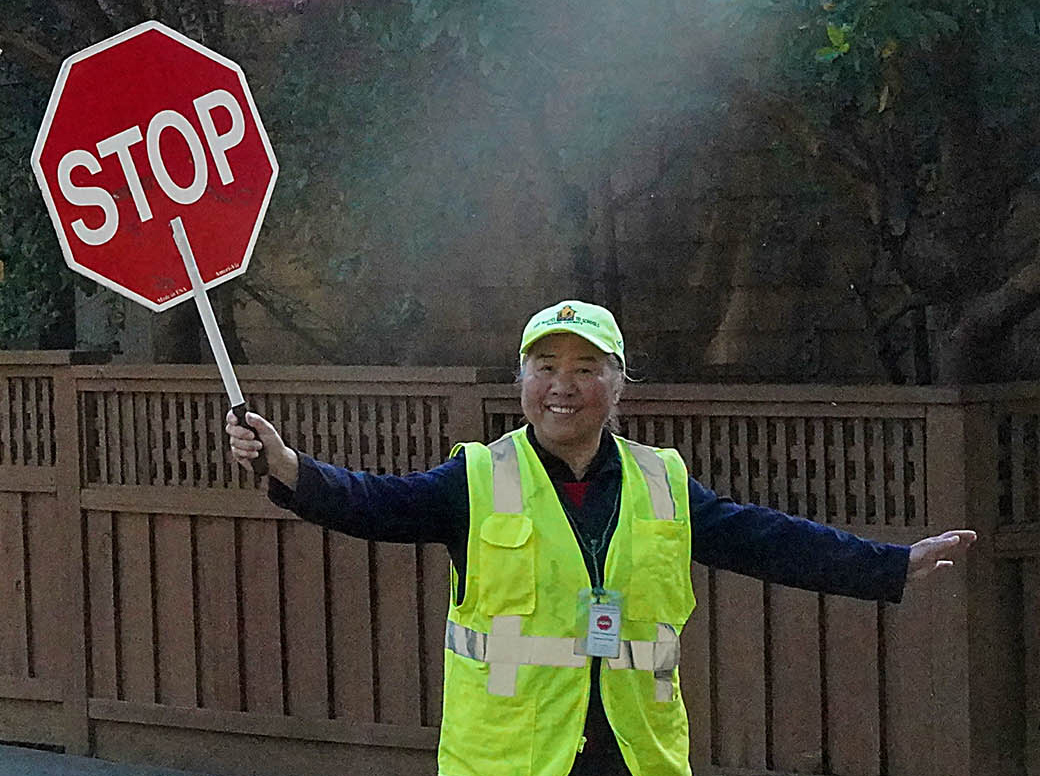
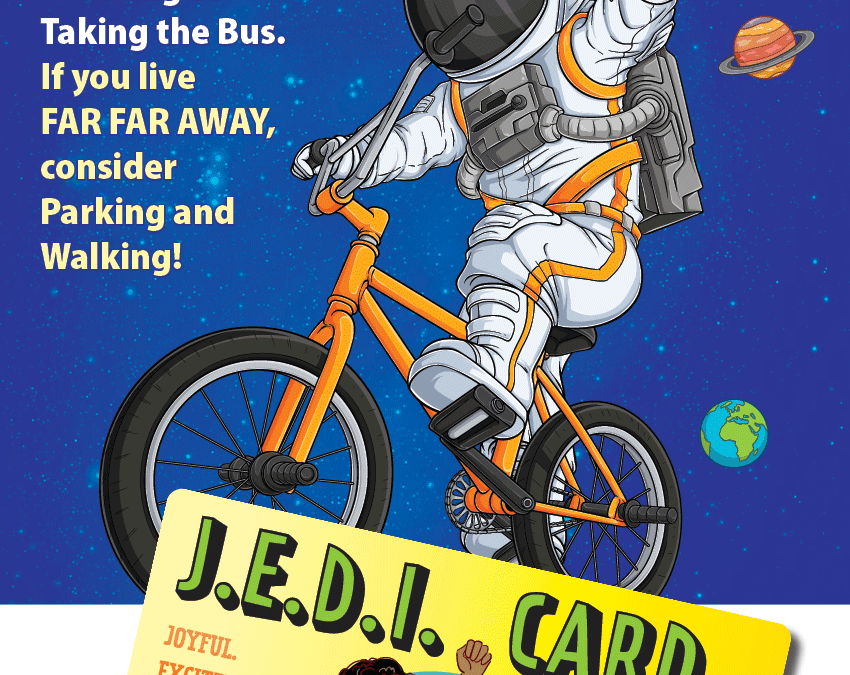
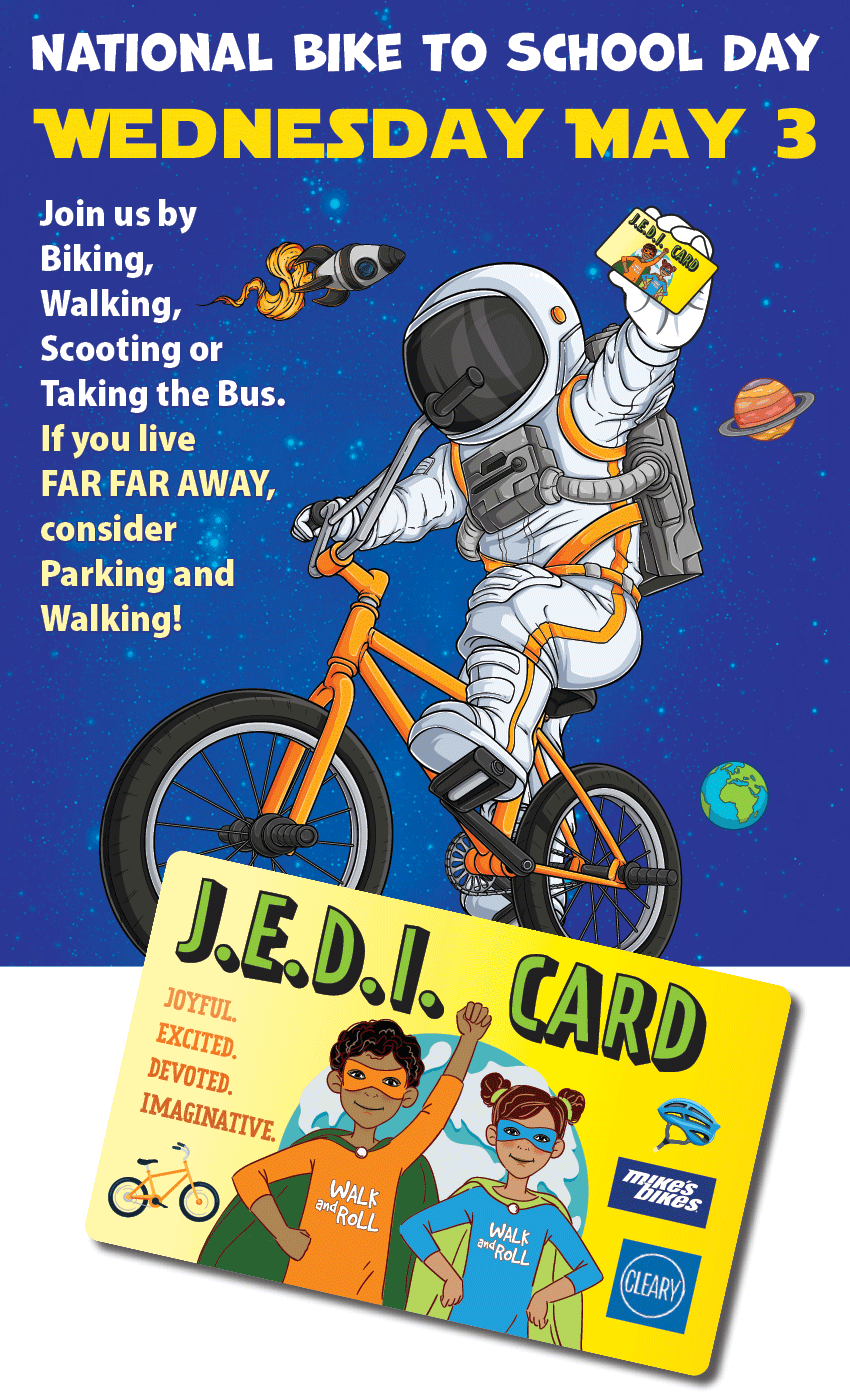
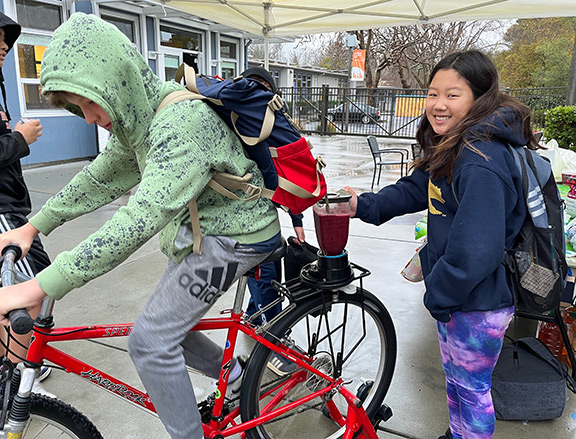
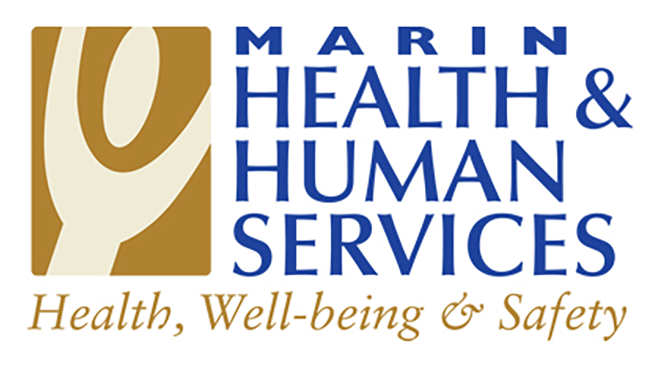
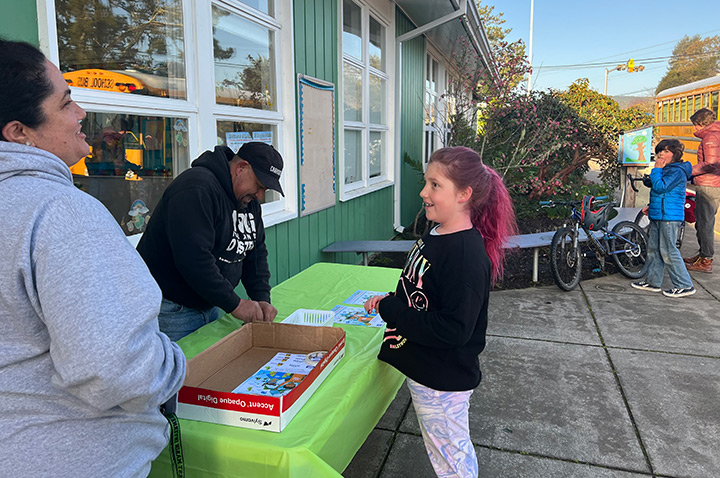
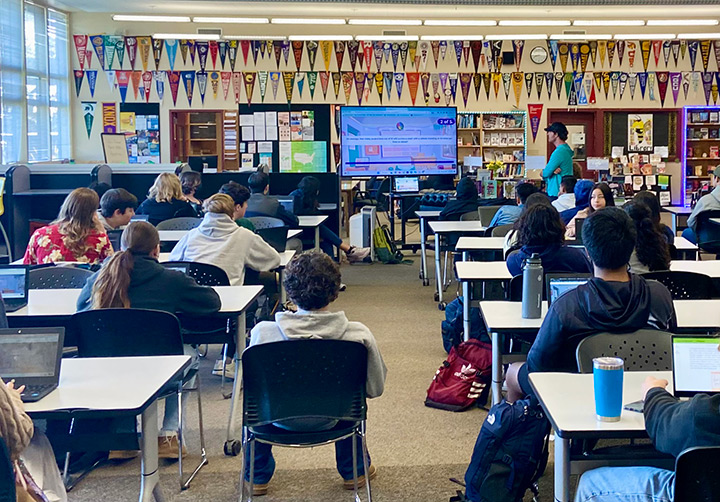
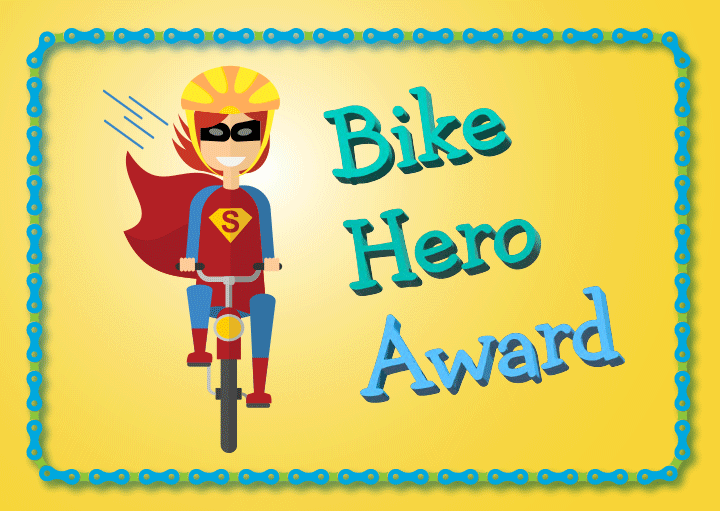
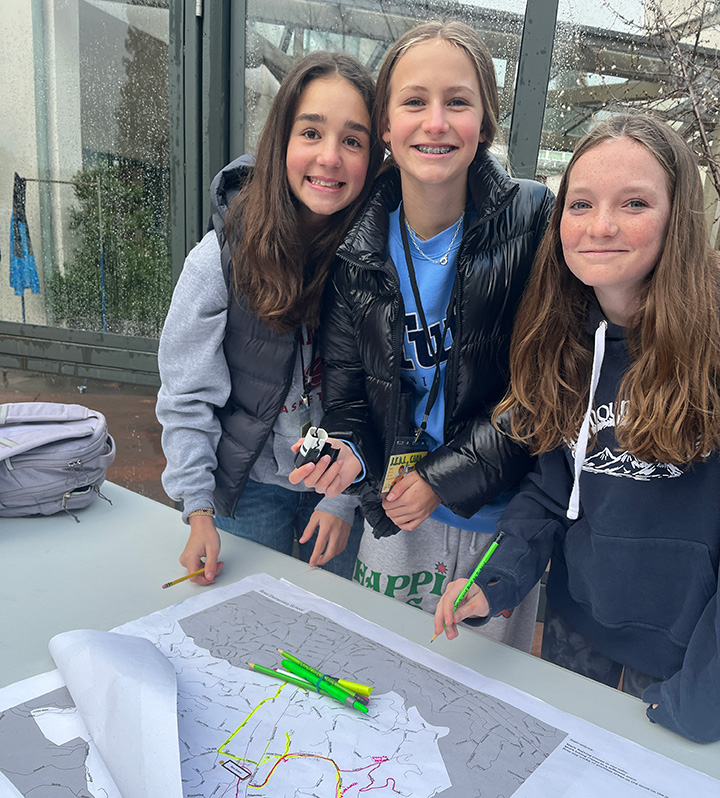
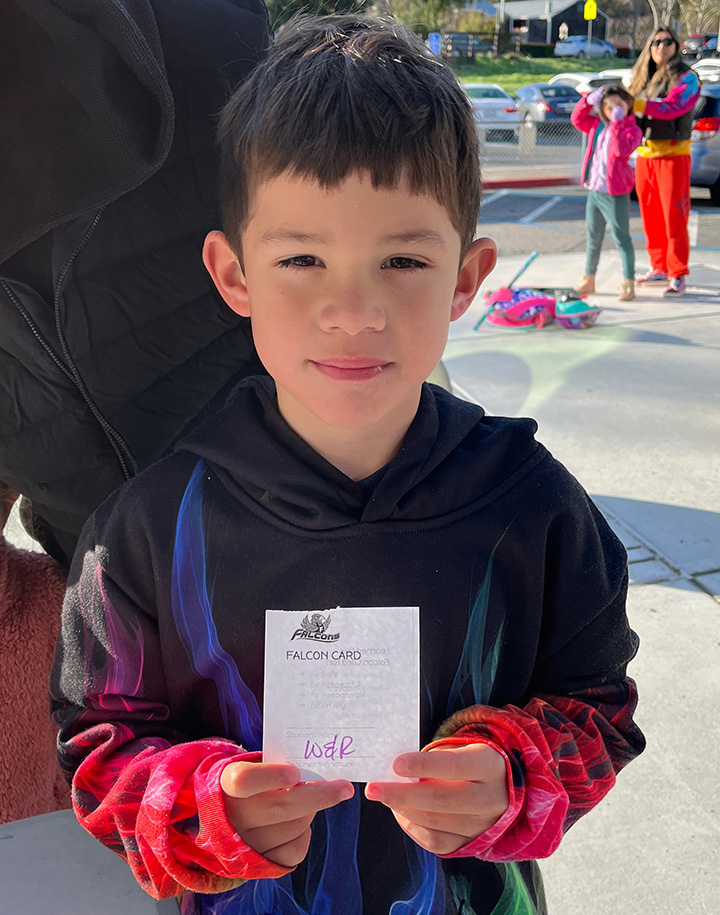
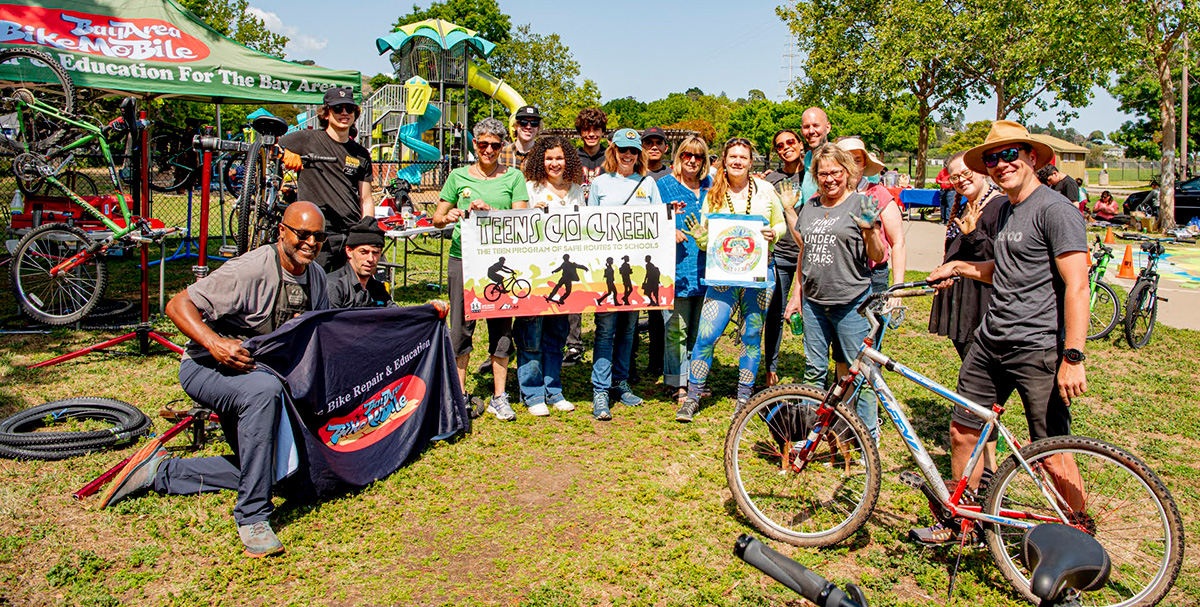
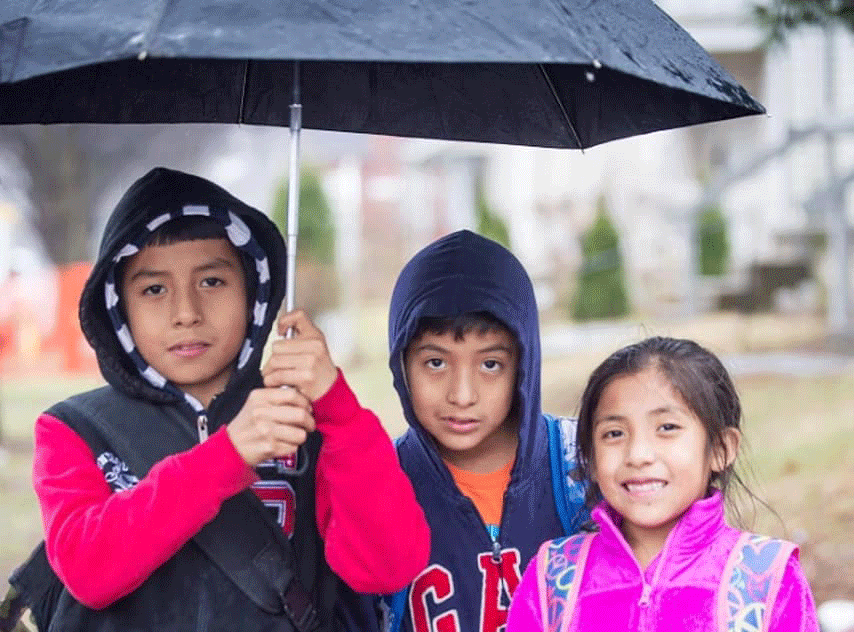

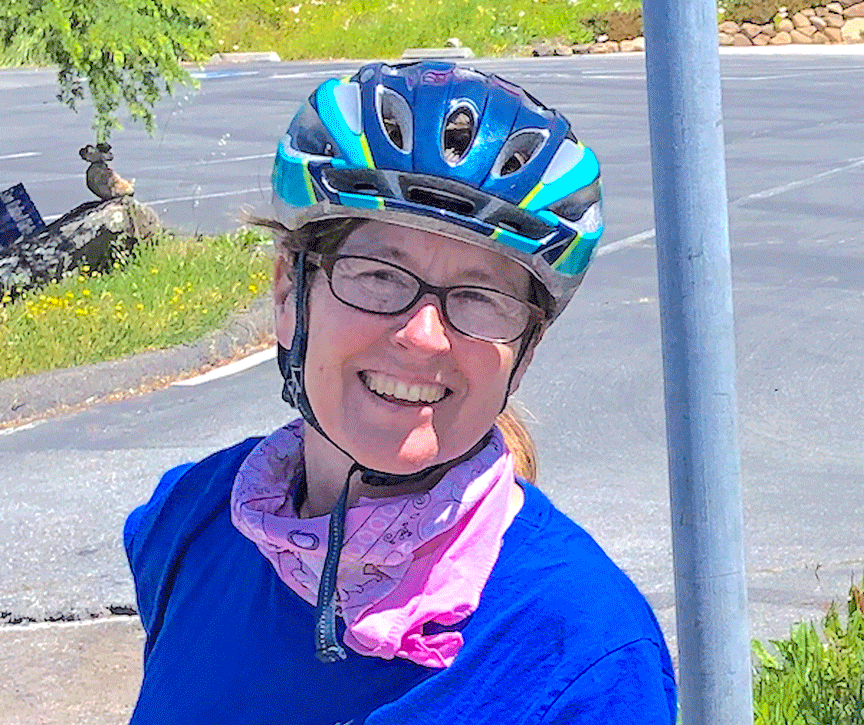
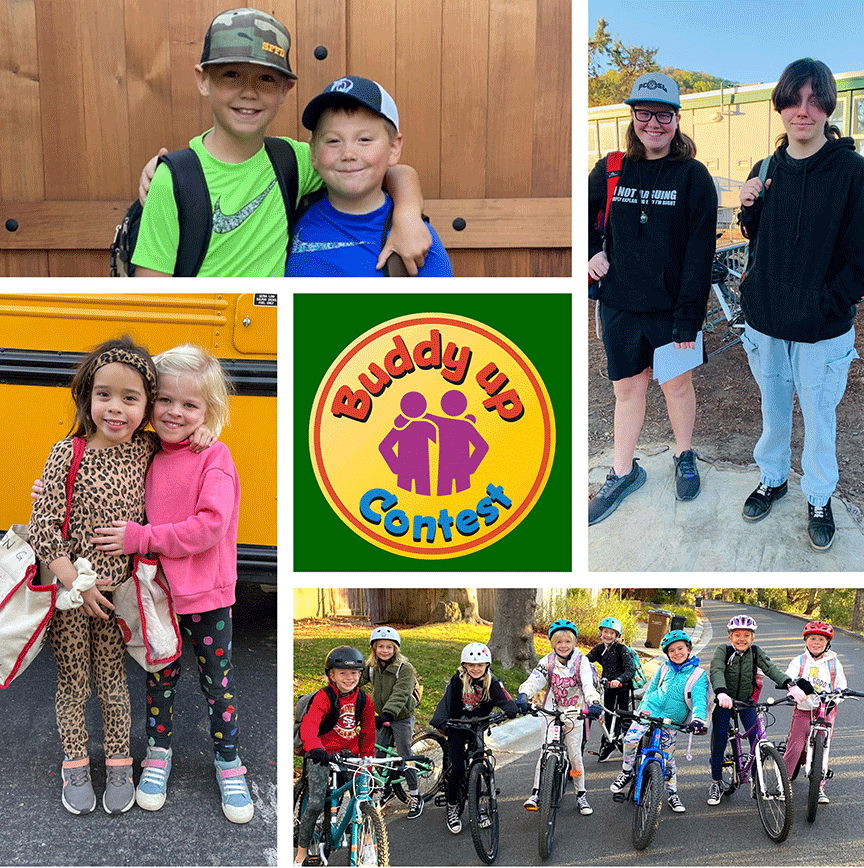
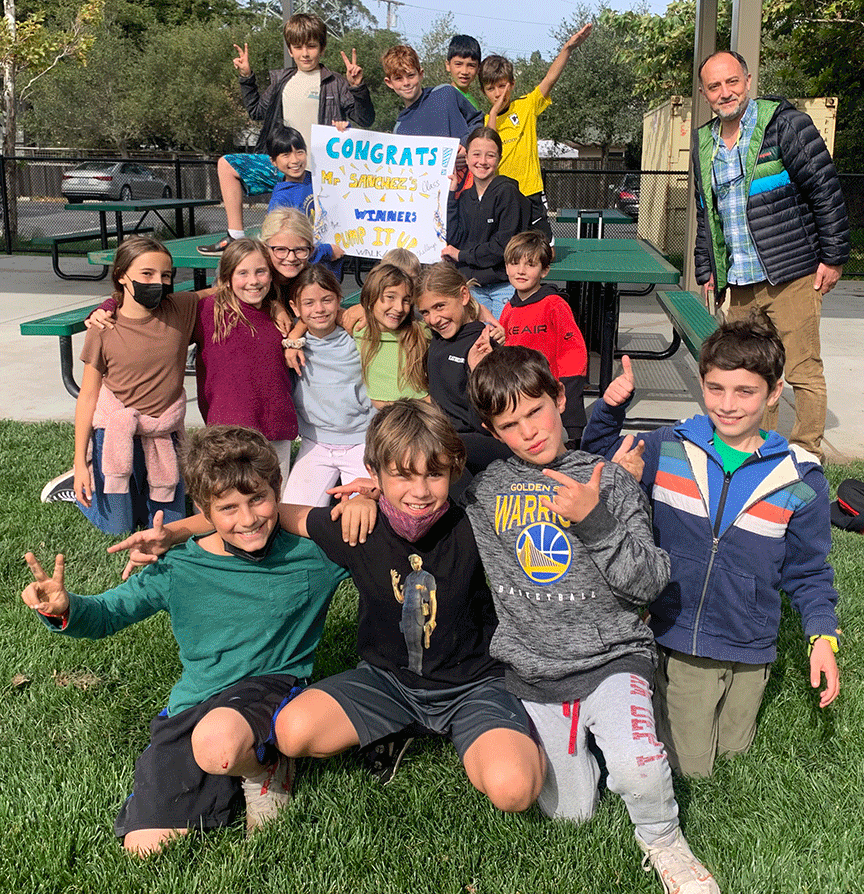
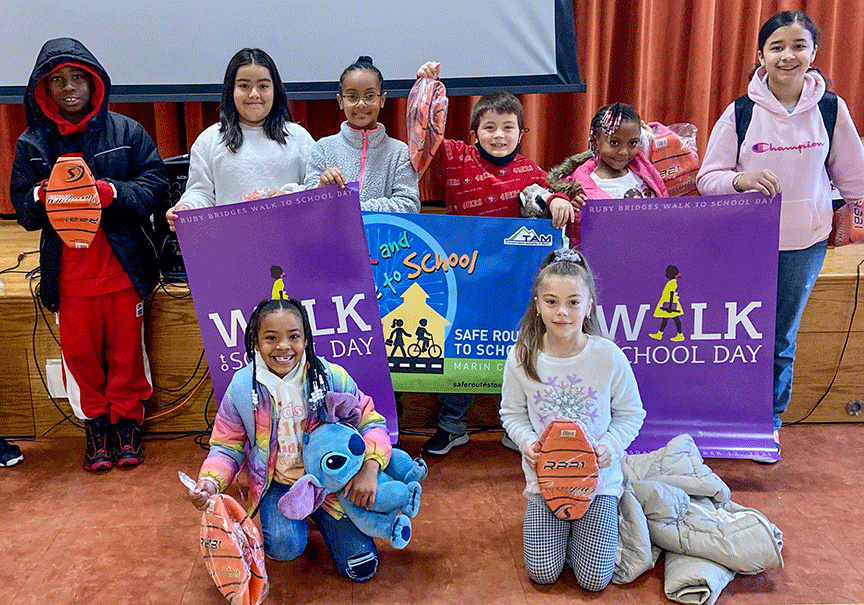
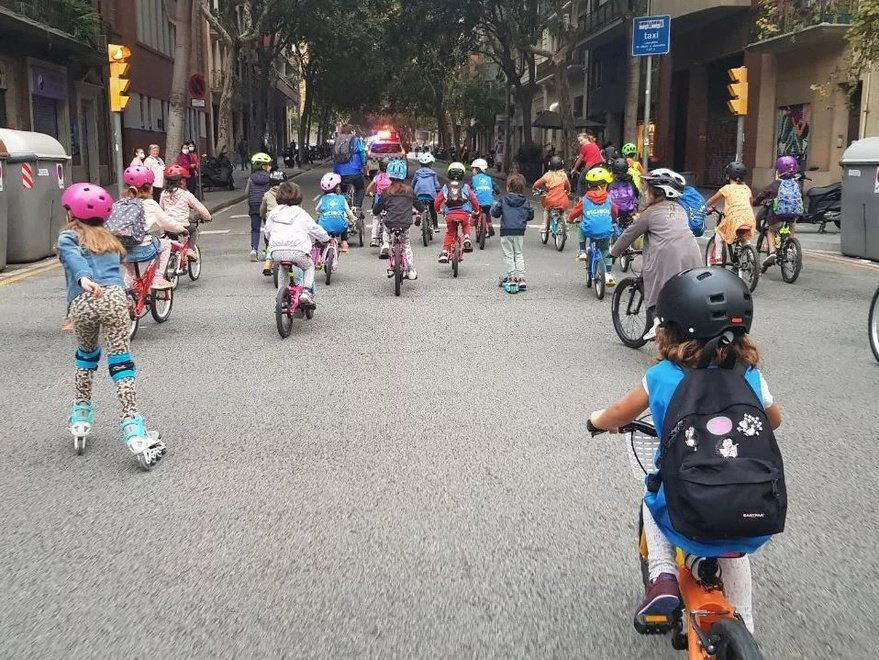


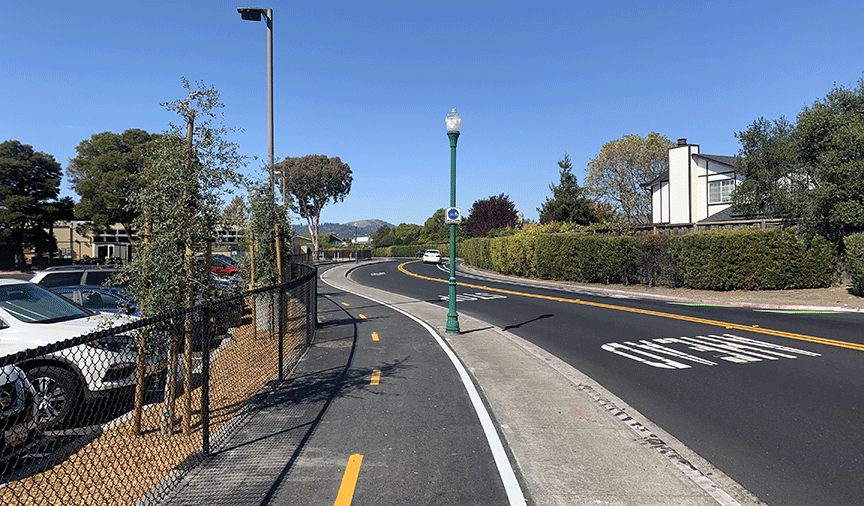
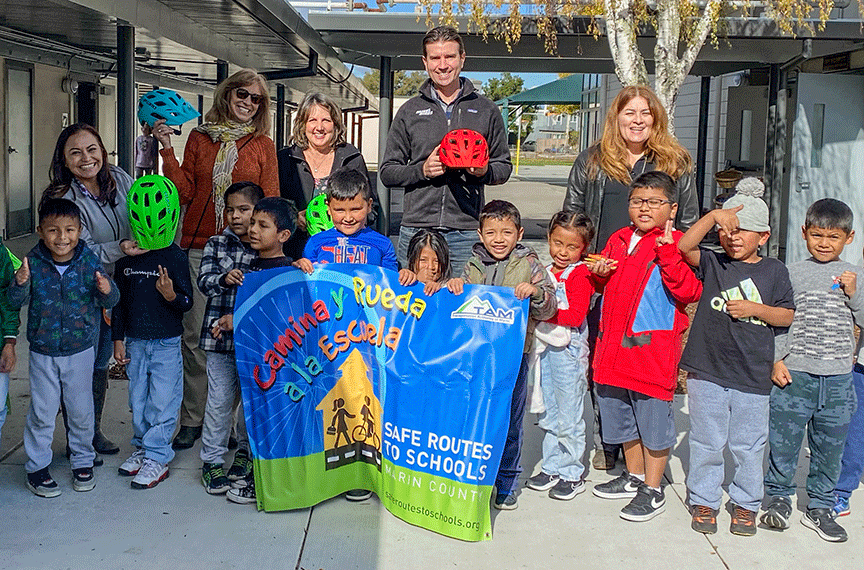
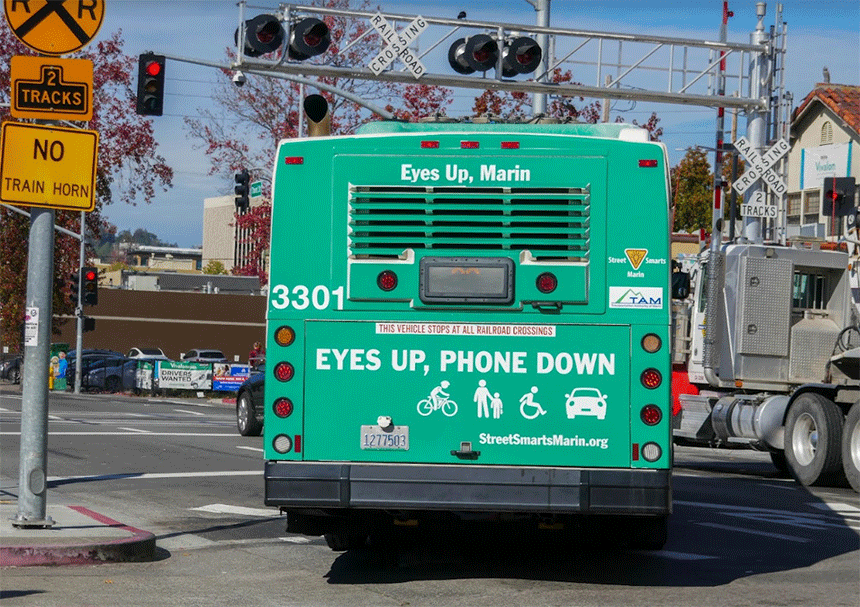
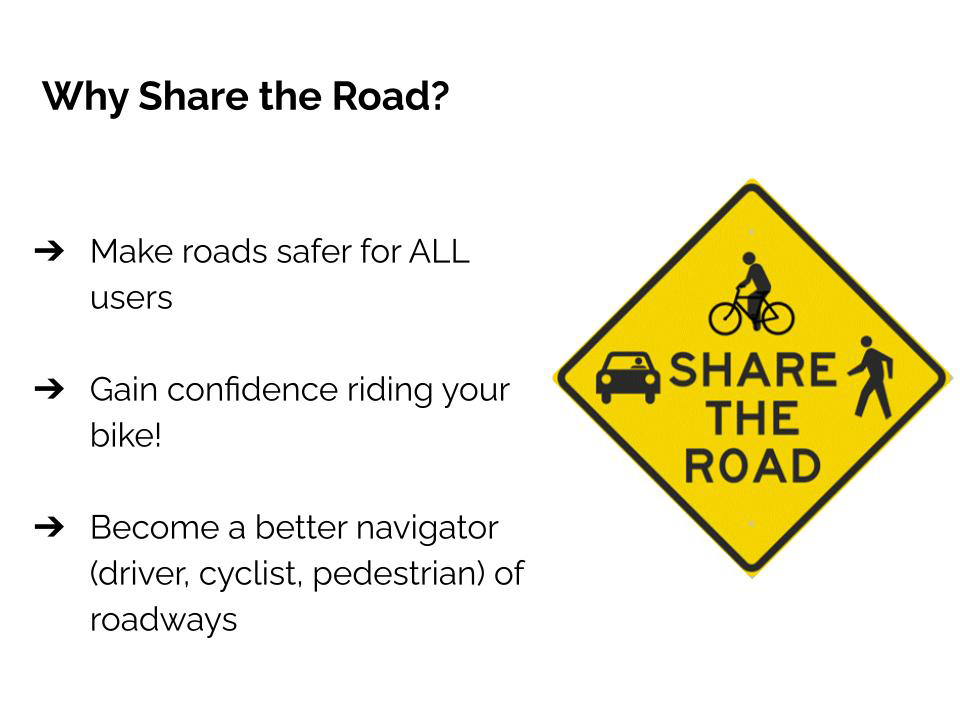
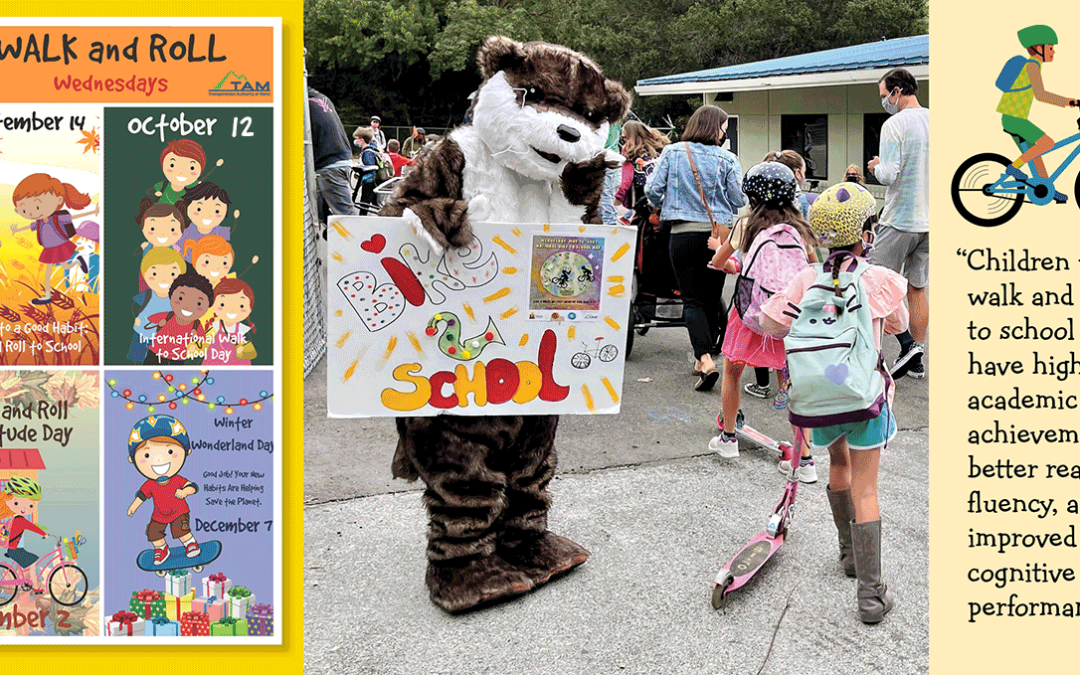
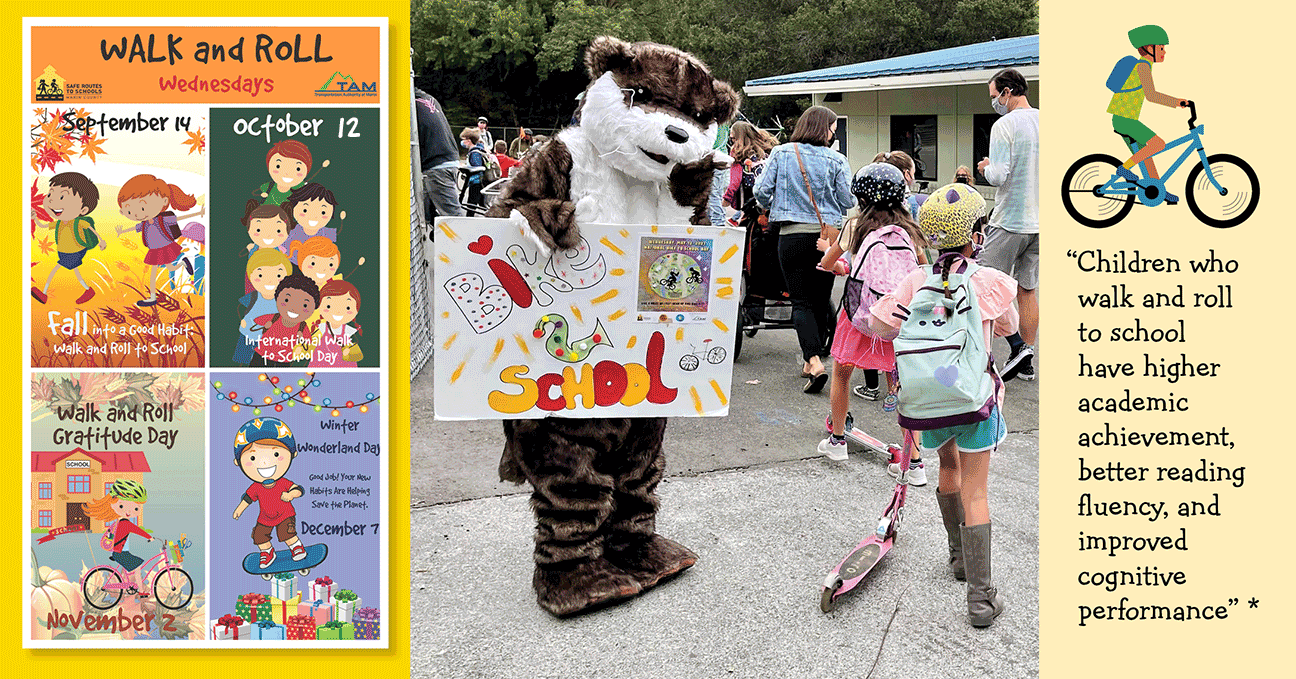
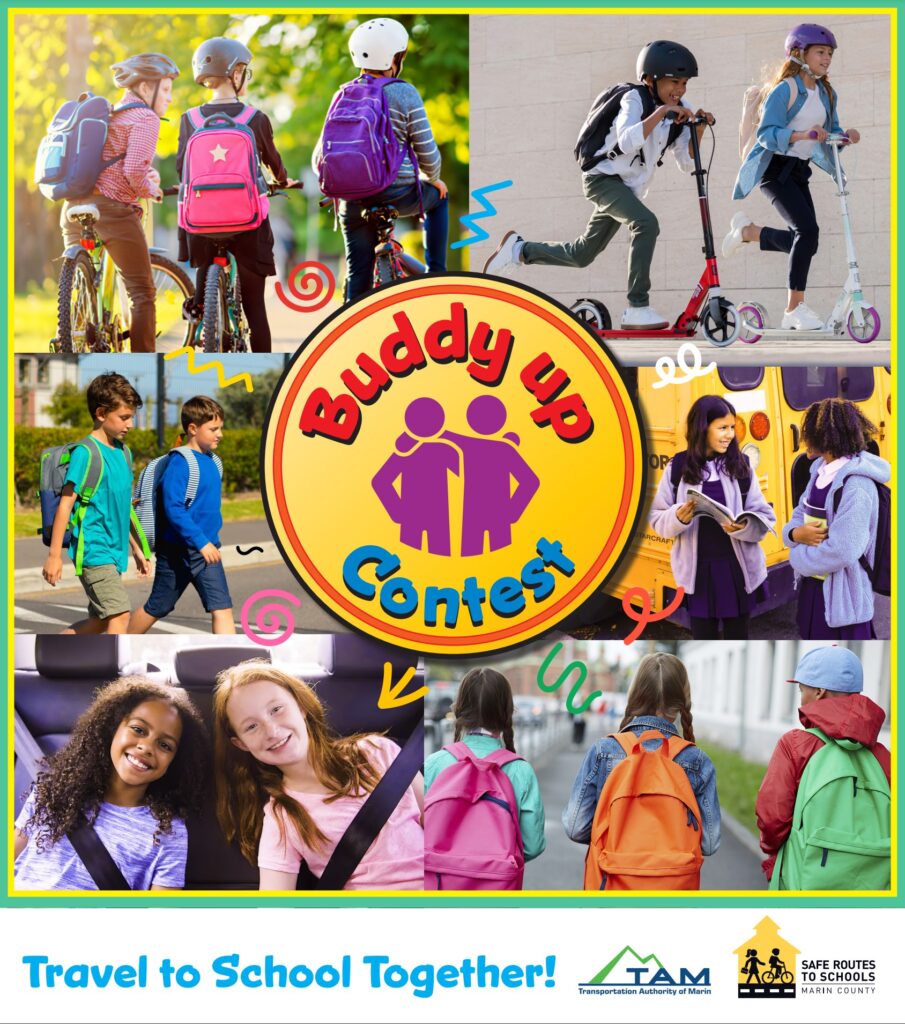
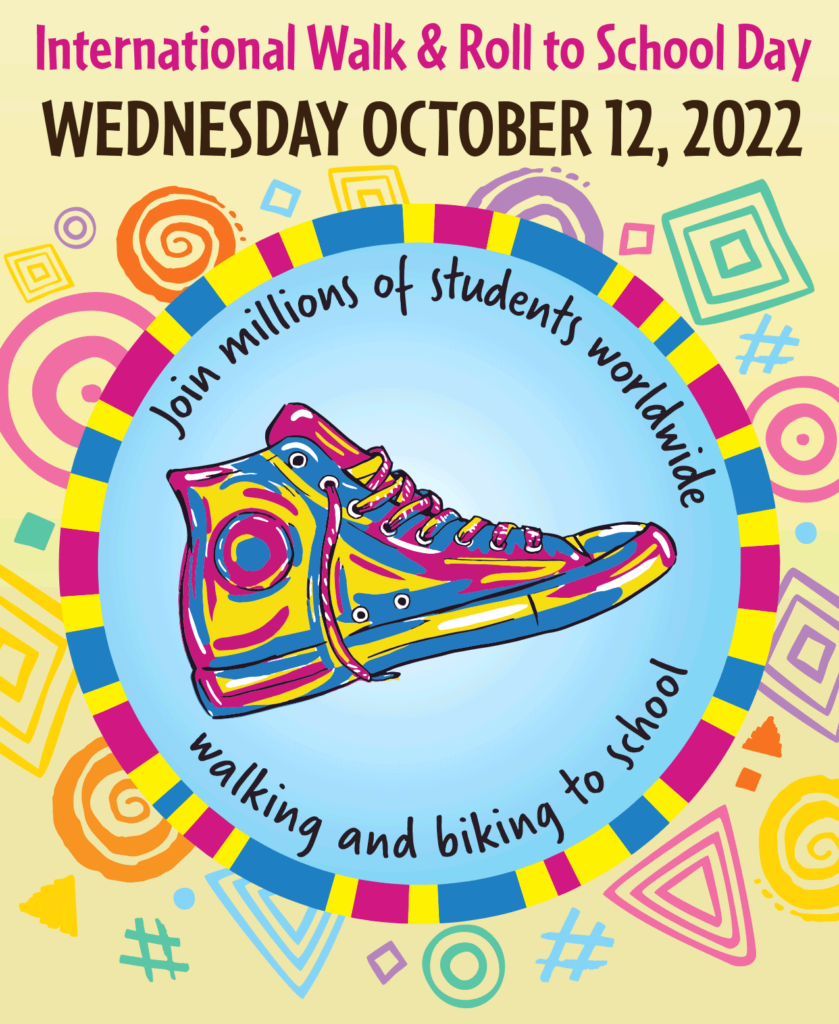
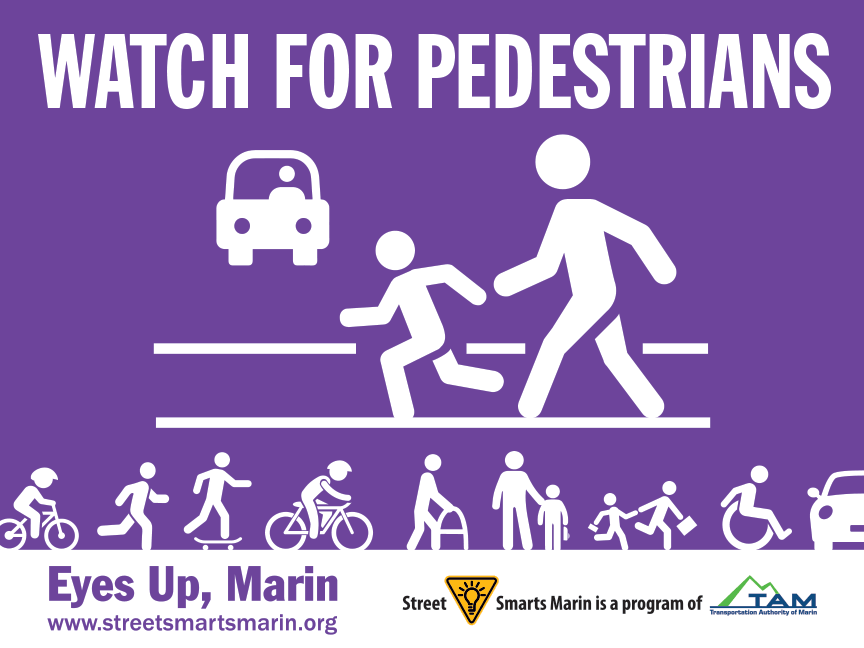
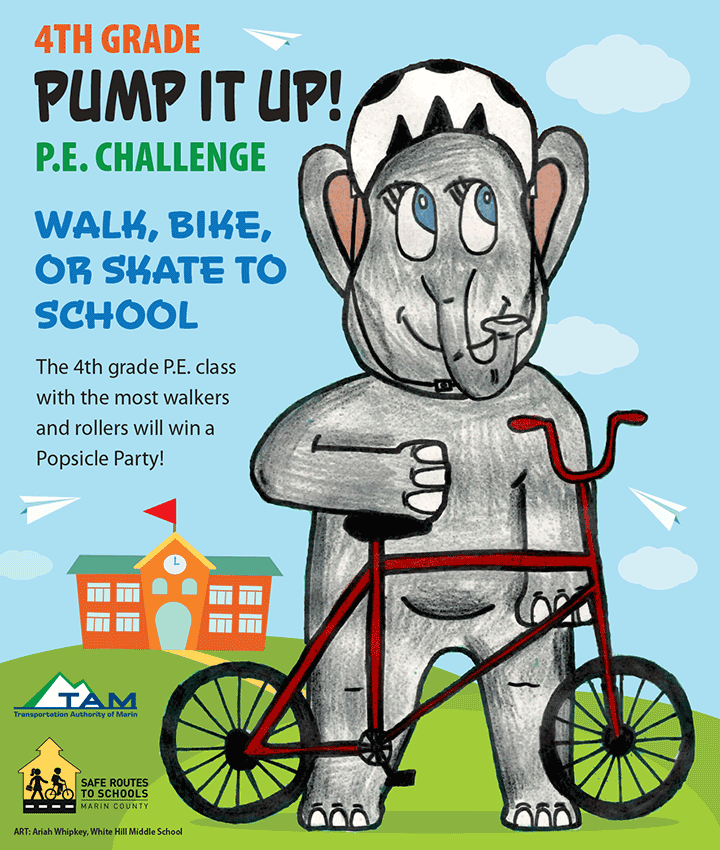
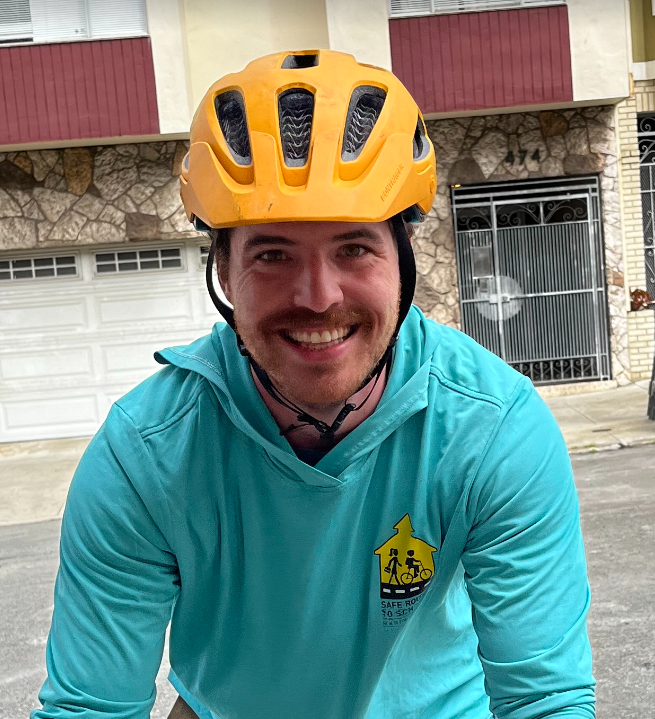
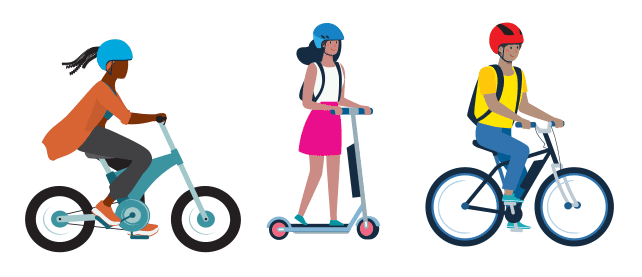
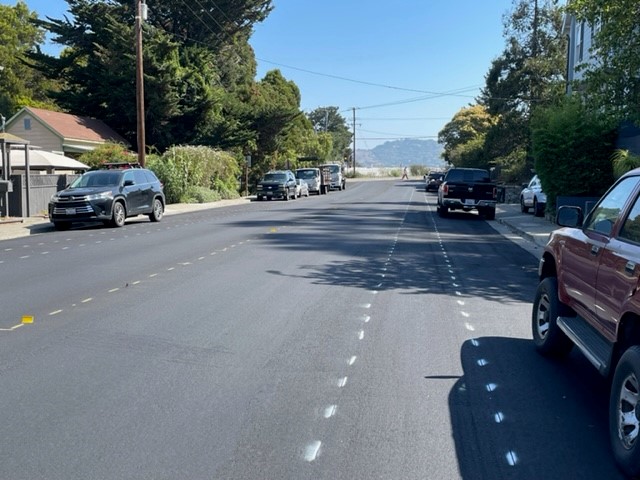
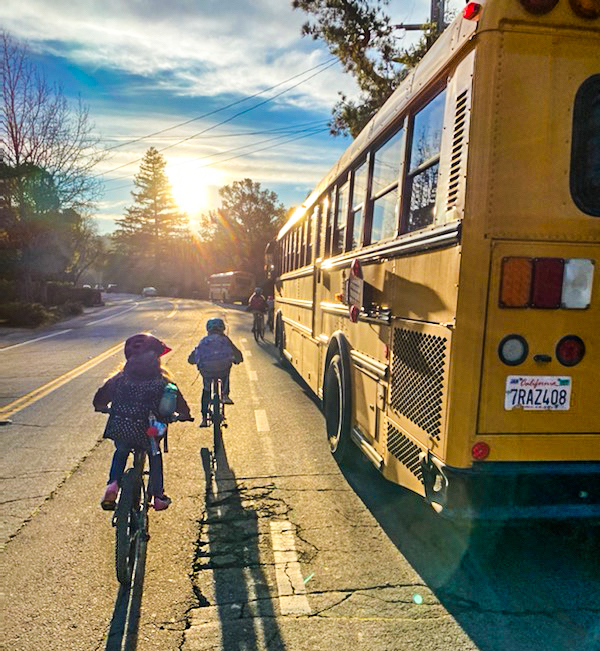
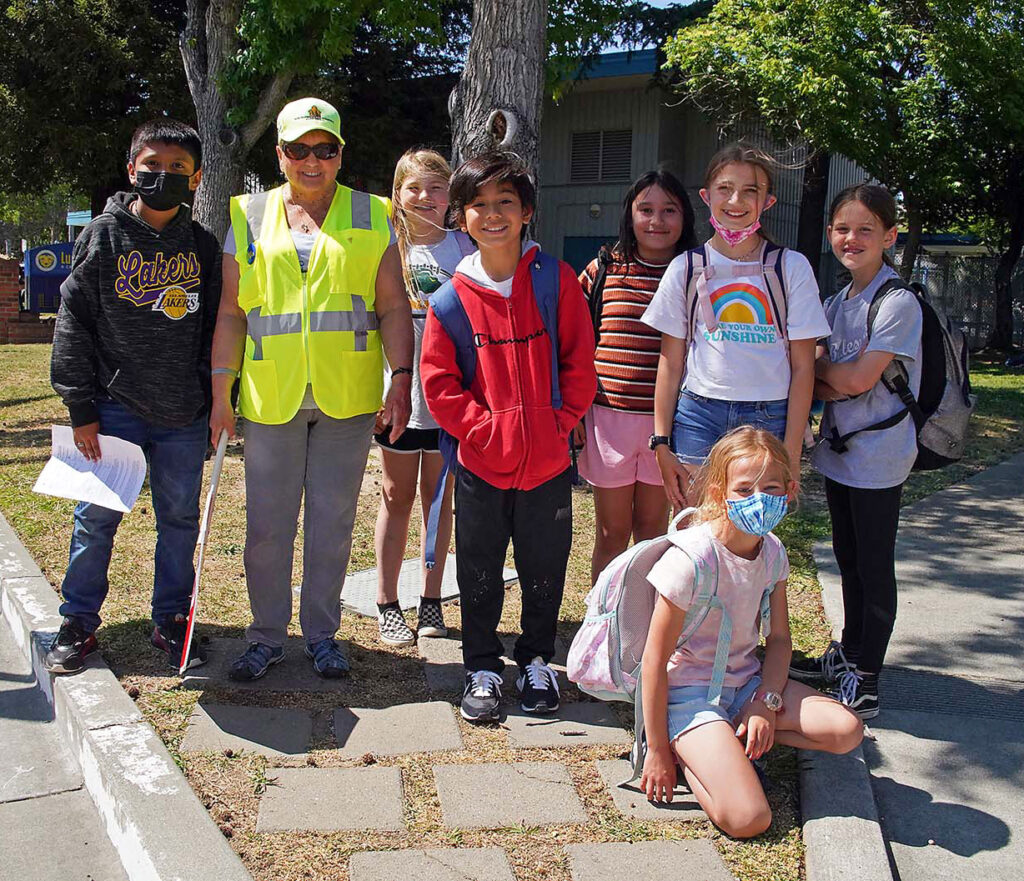
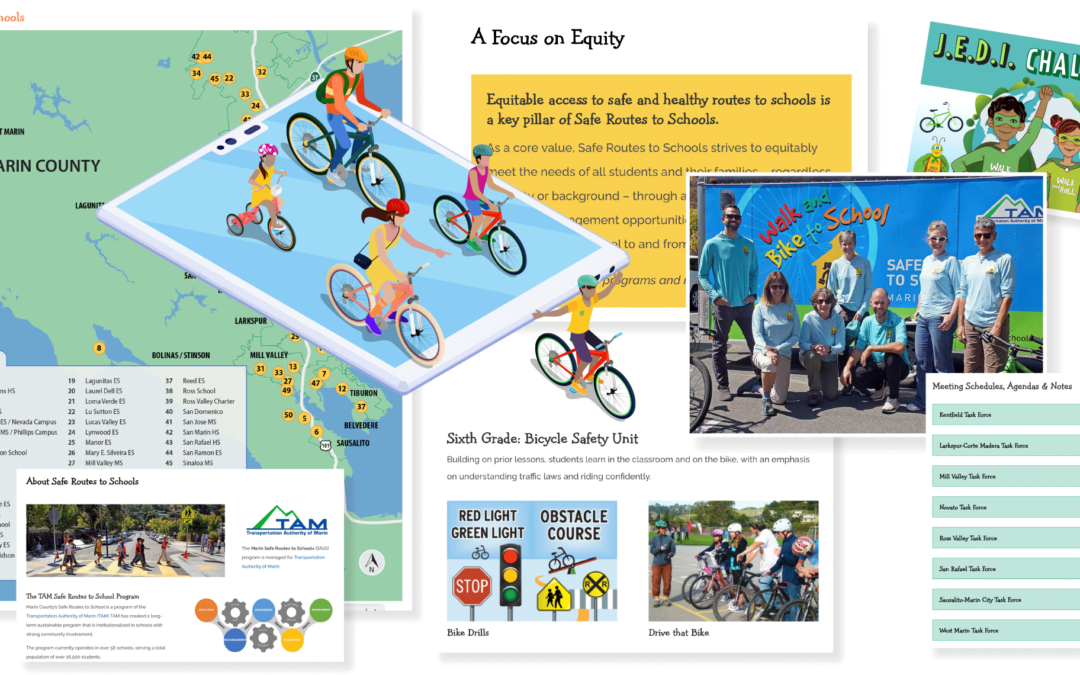
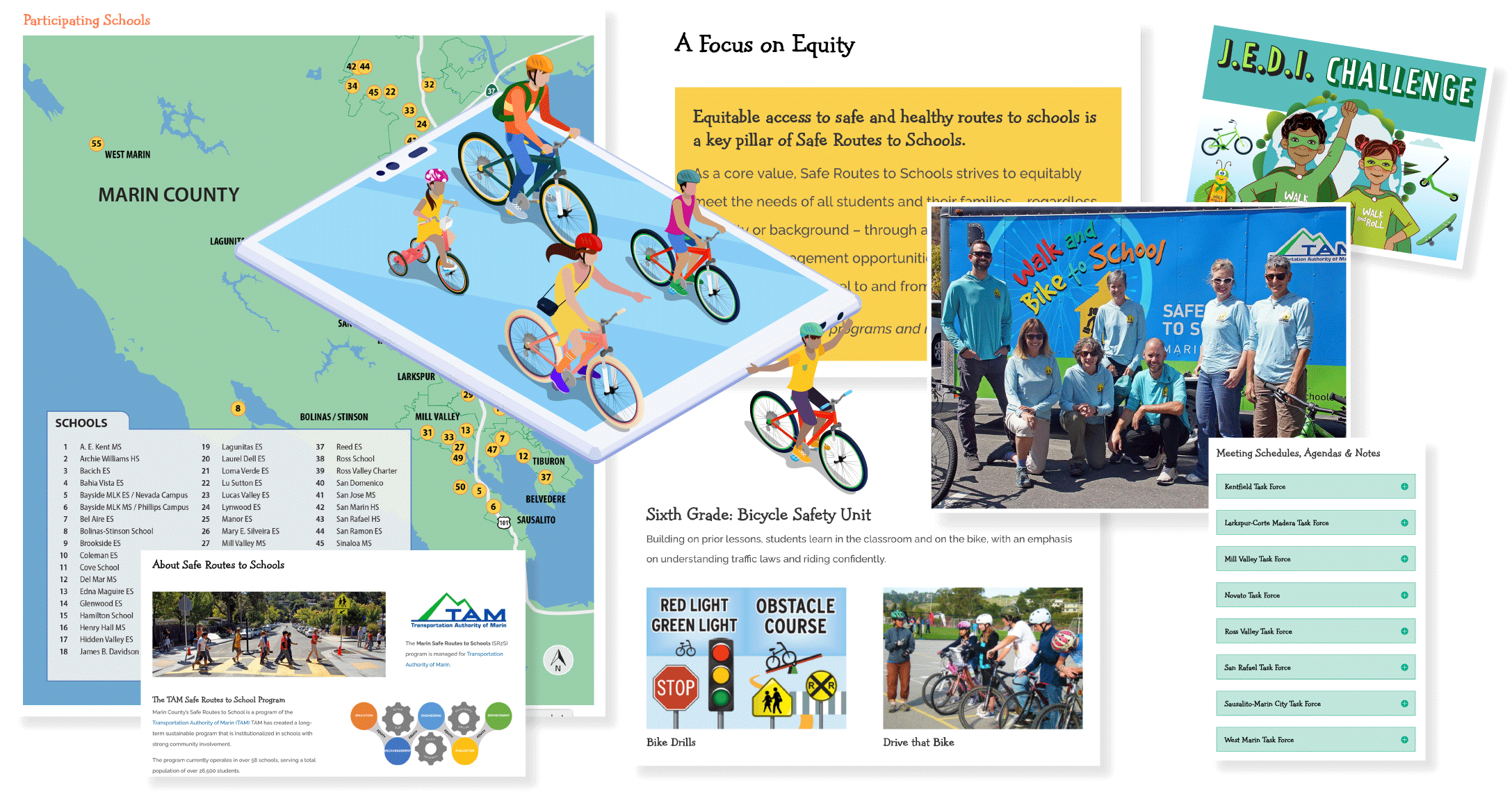
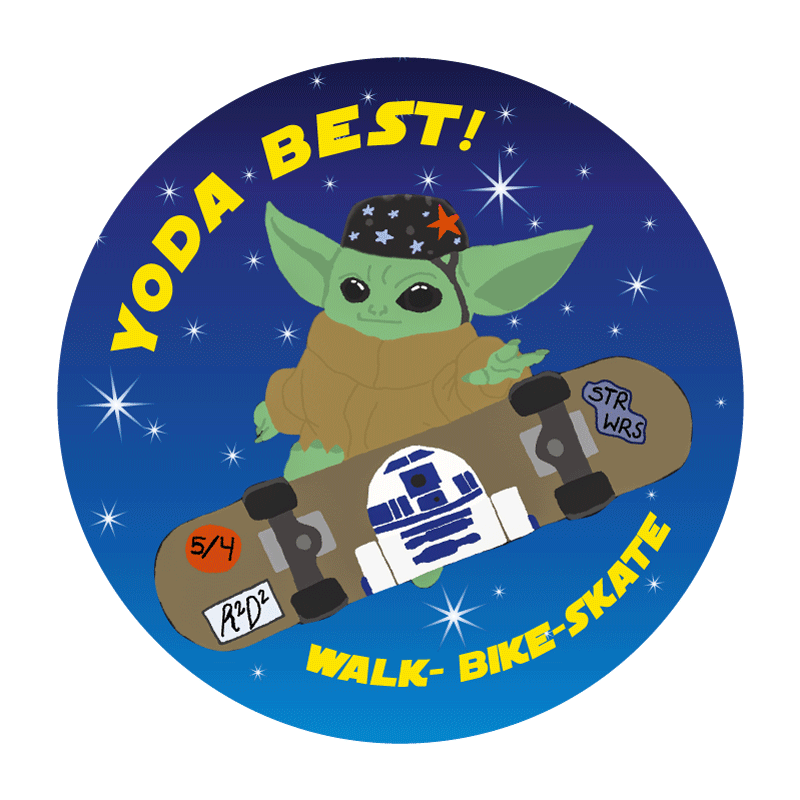 Safe Routes to Schools has some out of this world events for walkers and rollers this spring. Mark your calendars so your student won’t miss out on these special, galactic activities at your school.
Safe Routes to Schools has some out of this world events for walkers and rollers this spring. Mark your calendars so your student won’t miss out on these special, galactic activities at your school.